Photo: Joseph Okpako/WireImage
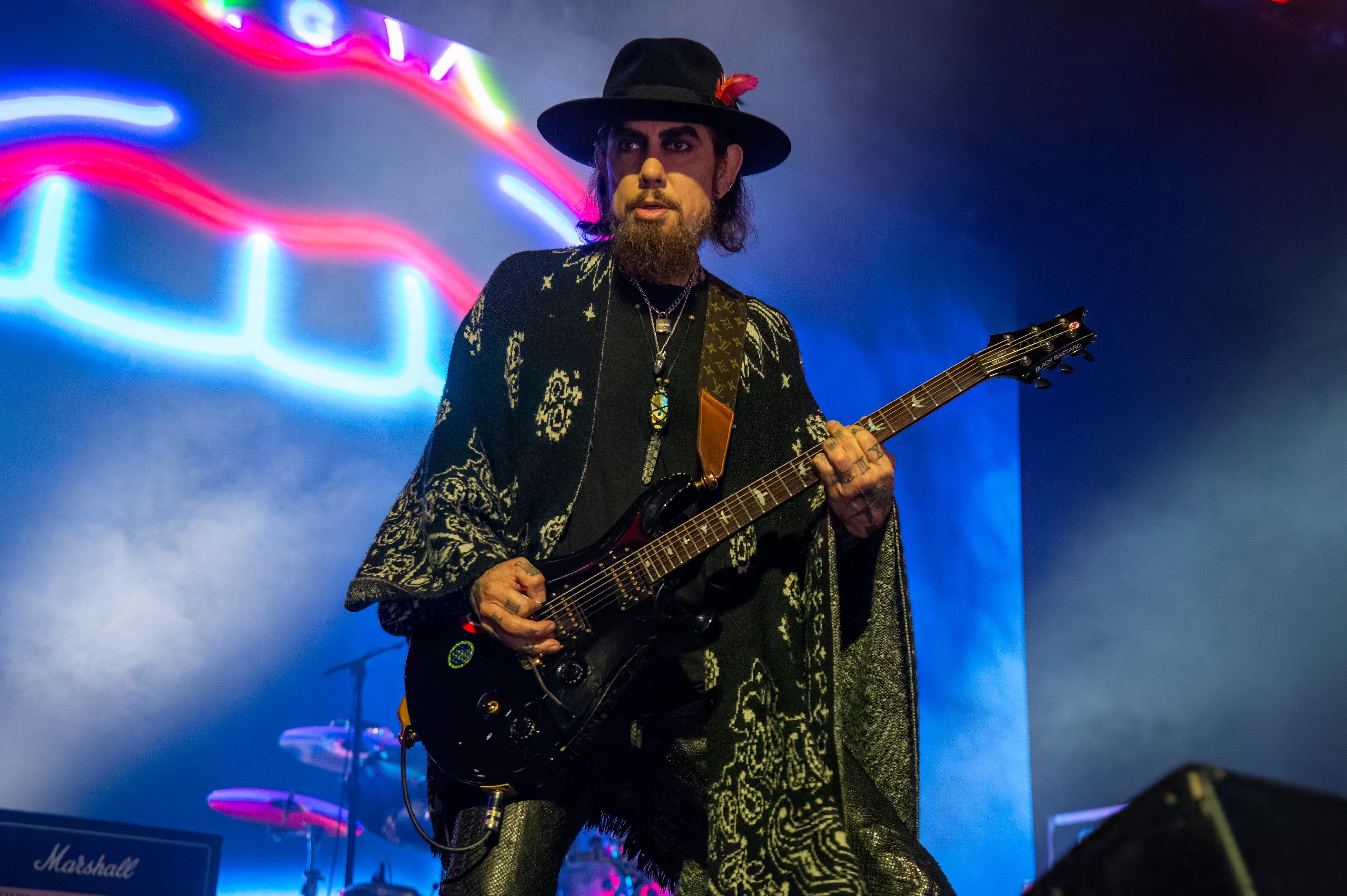
interview
Dave Navarro Talks Jane's Addiction's "Imminent Redemption" & The Foursome’s "Secret Sauce"
“The four of us have no business being together in a band given our backgrounds," Navarro says of his bandmate's musical origins. Despite that, Jane's Addiction is back with a new song and their first U.S. tour in over a decade.
The original members of Jane’s Addiction are a diverse bunch. There’s trippy visionary singer/stylist and Lollapalooza co-founder Perry Farrell; Stephen Perkins, the monster drummer with a goofy-meets-spiritual vibe; and bassist Eric Avery, who opted not to be part of the 1997 and 2001 Jane’s reunions and played with Garbage from 2005 to 2022.
Then there’s multi-faceted musician Dave Navarro, who in addition to his work with Jane's, spent five years with the Red Hot Chili Peppers, and brough his guitar stylings to songs by Janet Jackson, Nine Inch Nails, Alanis Morissette and Guns N’ Roses. The Los Angeles native has made headlines with high-profile romances, TV reality appearances, television hosting duties, and in numerous all-star collaborations and benefit performances.
But Jane’s Addiction, which formed Los Angeles in 1985, has his heart. The group’s groundbreaking 1988 major label debut Nothing Shocking and follow-up Ritual De Lo Habitual marked the band as progenitors of the alternative scene. Their DIY aesthetic in videos, art and music resulted in subversively joyful creations, including the chart-topping "Been Caught Stealing."
However, egos, creative differences and substances interferred in the band’s trajectory, and a 1991 farewell tour also marked the inception of the first Lollapalooza and of Farrell as business mogul.
Jane’s Addiction may have helped make alternative rock mainstream, but never lost their sense of edgy creativity. They performed and recorded on and off in the ‘90 and early 2000s, in various incarnations with and without Navarro. The original lineup reunited in May 2024 at Bush Hall in London; that victorious, energized live return led to songwriting, with new single “Imminent Redemption” offering up lyrics that seem to be a rallying cry for Jane’s circa 2024 and onward: “Let's make some good trouble / Let's stir up that karma / Let's launch us a comeback.”
The track dropped ahead of a 23-city tour that kicked off on Aug. 9 at Fontainebleau Las Vegas. GRAMMY.com caught up with an energized, loquacious Navarro ahead of that jaunt, Jane’s first with the OG 1985 lineup in 14 years.
This interview has been edited for clarity and length.
Listening to "Imminent Redemption" conjured a mental image of shaking up a two-liter bottle of Coca-Cola; You want to rock out, explosively, and you finally get to do it.
To me, it feels like a follow-up to Ritual. The band right now is in such a great place. We have the original lineup. God bless Chris Chaney, who's one of the best bass players in the world, one of my best friends. He stood in and he did two records with us,15, 20 years.
A lot of the Jane's Addiction material is primarily written from basslines Eric Avery comes up with, and those are usually the memorable singable parts of the song. You might sing the vocal, but you're not singing the guitar part. Sometimes you're not singing the vocal part, but you're singing the intro to "Mountain [Song]" in your head, or the intro to "Three Days." His input is really the musical backbone of the band. When we got together to do these [new] songs, that was immediately there.
We also wanted to keep the music under-produced. We didn't want to go crazy with modern-day technology and all kinds of crazy instrumentation, overdubs and tracks; we wanted to keep it pretty raw. In fact, I think there's parts of "Imminent Redemption" that are reminiscent of Ritual and Nothing Shocking, but I also think it's reminiscent of the Triple X record [1987’s Jane’s Addiction] because there aren't 15 guitar tracks. There aren't synths, there aren't all kinds of things that we ended up doing as we went on and probably will do on other songs.
Lyrically, Perry's coming from such a... I don't want to speak for him, but my interpretation is that it's an aggressive cry for unity and peace. There's a little bit of anger there, but anger in the name of let's not have any anger anymore, if that makes any sense.
It does.
Another weird thing about Jane's Addiction is a lot of our most well-known songs — "Mountain Song," "Stop," "Ocean Size," "Jane Says" — they really don't have choruses. They just, say, have two parts to go back and forth.
So the fact that we got away with "Imminent" and we're able to put a chorus in there is kind of unusual. But I think it works, and it still kind of keeps it like the two-part formula of Jane's Addiction. But then the outro goes into another musical direction, which is also very us, because we get bored within songs.
Do you think "Imminent Redemption" will grow into a record?
There might be stuff I can't talk about, but no one's told me not to talk about it, so that's their problem, I guess!
The idea is to release a full-length album; I would consider it the fourth Jane's Addiction record. The two records we did with Chris Chaney I love, but it's a different band. With this lineup, I really feel like this next record's going to be the follow-up to Ritual. It's really special to be back with Eric and writing with Eric; Eric and I have always worked really well off each other in terms of finding parts that work together and complement one another but are not really the same.It's like we picked up just where we left off.
I don't know if we're going to put out a record or if we're going to put out a song every once in a while. Whatever that master plan is, that I can't speak to. It's either a song comes out every month until there's 12 songs, or we put out a couple songs and then we put out the record. I don't know. We have plenty of completed material already, so it's one way or another it'll all be out there.
A "follow-up record" more than 30 years later…
In some ways, it was such a shame for the band to part at such a musical peak, because I think that record [Ritual] is really, really special. But it also saved us from following it up with something subpar. So it is just part of the legacy. It's part of the story. And so far I've been really happy with everything we've been making.
How has it felt being back on the road?
We just finished a two-month tour of Europe, and I was so grateful to be back out, and doing it with the band, and being able to do it. But man, it was challenging.
It still has that [feel of] the early days, where we were on this edge of this cliff where nobody really knew what was going to happen from time to time, from song to song, in between songs, what Perry was going to say or do. Or if he was going to all of a sudden just go into some stream-of-consciousness banter in the middle of a breakdown of a song. And you just kind of have to pay attention and just feel where it's going to change.
We kind of lost that for a long time. And now that element of surprise has come back to the shows. Also, I think the fact that this last tour was just the four of us on stage with minimal to no production, a couple of lights and four guys playing weird music, that's all we needed. It left room for there to be magical moments that gave you goosebumps because you weren't distracted by a bunch of stuff.
In the broadest sense, what is at the core of what makes this lineup special?
Stephen Perkins and I were in high school together, and we had a heavy metal band. We played heavy metal covers, we wrote heavy metal songs, and we were into technical wizardry. We were into fast guitar playing. He was into Neil Peart.
Perry, at the same time, was doing a goth band called Psi Com. Eric was more in the new wave punk rock world. He was doing different experimental stuff. And we ended up getting together as a result of Stephen dating Eric's sister. Perry and Eric met, and started playing together, and they needed a drummer and a guitar player. And they called us and we got in there.
The formula is that the four of us have no business being together in a band given our backgrounds. Now, since then, they've grown to love some of the music Stephen and I came up with. We've grown to love the music that they came up with. And then it kind of just blossomed.
We decided we weren't any particular kind of band. We were just musicians, and we would just pull from anything. If we wanted to go in a Pink Floyd direction, we'll do that. If we want to go in a Black Sabbath direction, we'll do that. If we want to go in an Iggy direction, we'll do that. But without consciously choosing to, just being open to all genres.
Fans would agree.
That’s kind of like the secret sauce: Combining elements that wouldn't normally go together and putting them together and seeing what happens. It's been a long road. Although in our older years, we do get along very well and have a lot of respect for each other. But coming up and through the early years, it was difficult. There were resentments, there were stylistic differences of opinions. There were multiple breakups, multiple problems that just came from adolescent ego.
Now that we're all at the ages we're at, and just about everybody has a family, we kind of just let go of that. We’re just, "You know what? We had something really special back then, and I don't know what we were complaining about." So we're doing it again.
Morgan Enos and Katherin Turman contributed to this story.
Explore The World Of Rock
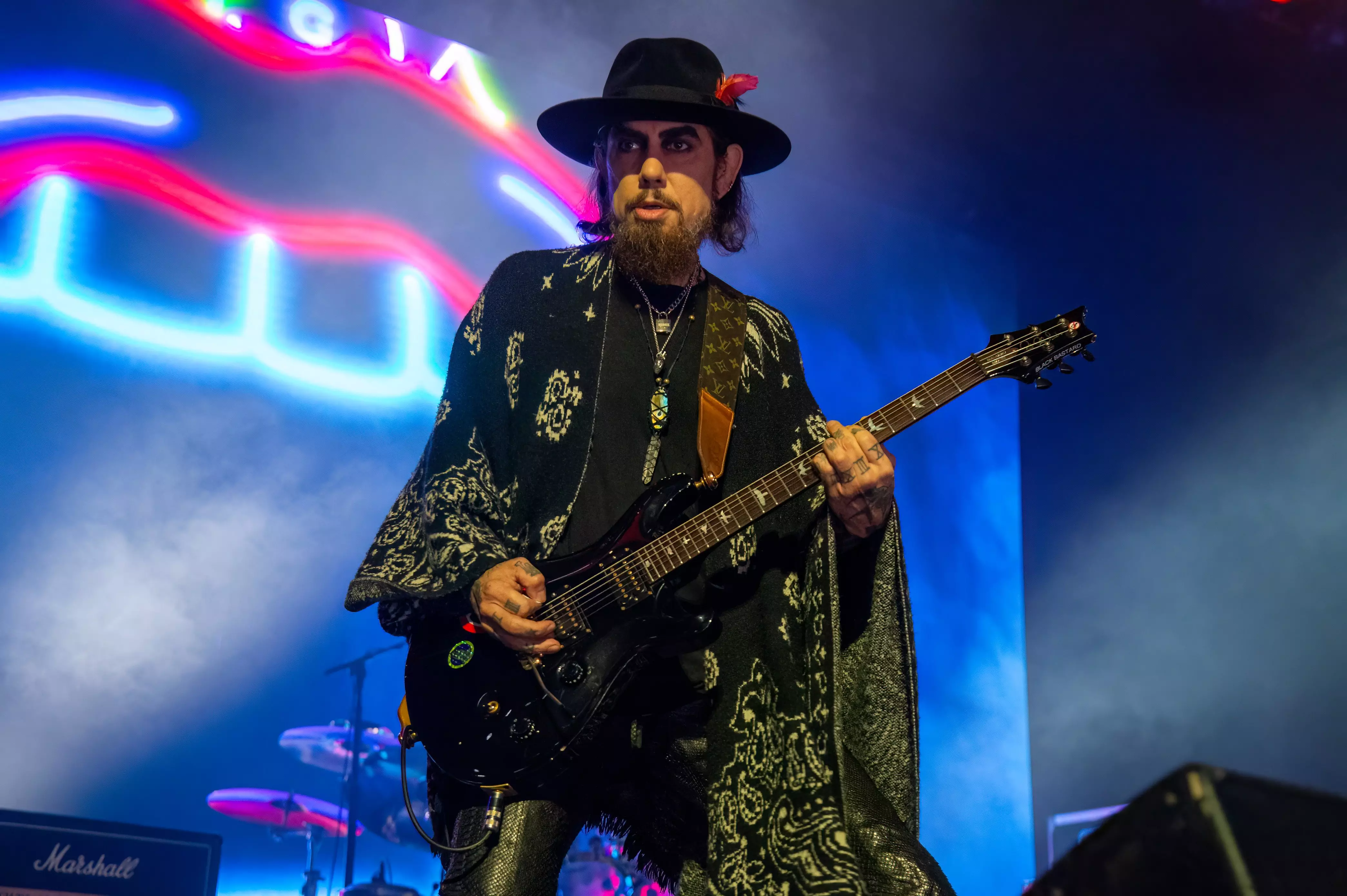
Dave Navarro Talks Jane's Addiction's "Imminent Redemption" & The Foursome’s "Secret Sauce"
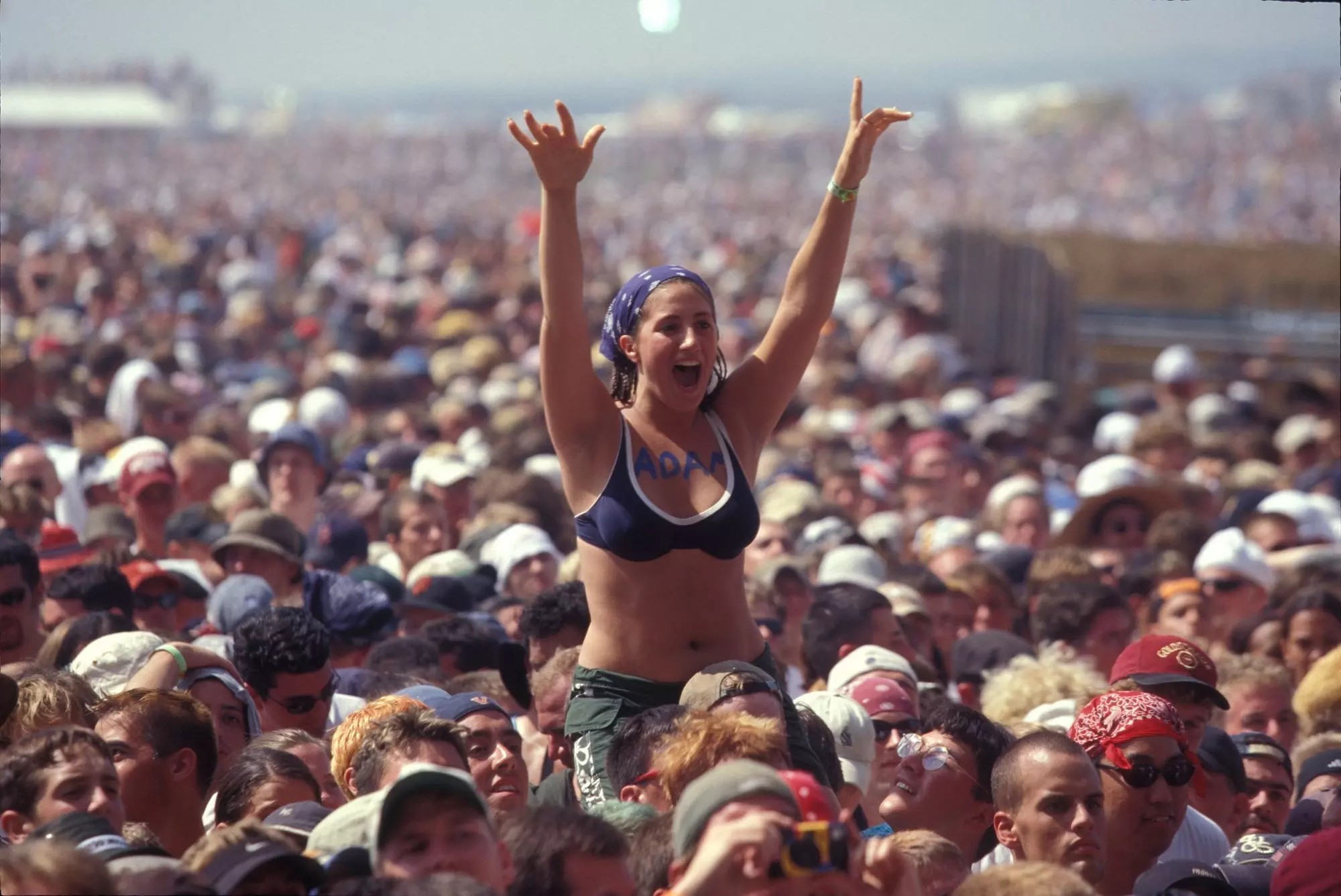
On This Day In Music: Woodstock '94 Begins In Upstate New York

Watch Alanis Morissette Win At The 1999 GRAMMYs
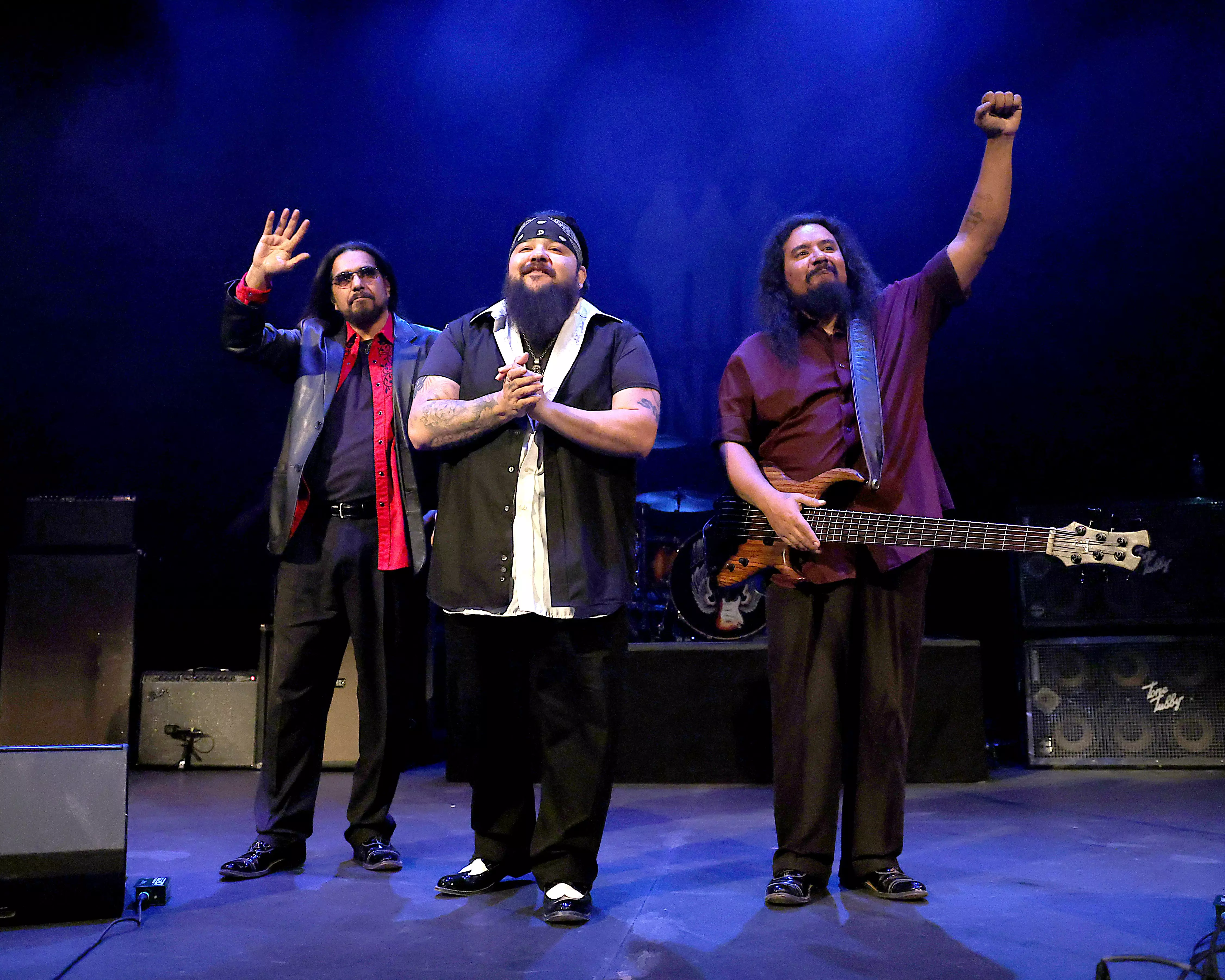
Los Lonely Boys Resurrected: The Sibling Rockers Talk Their New Album, Return To The Road & Family Magic

SCAR Covers "Iris"
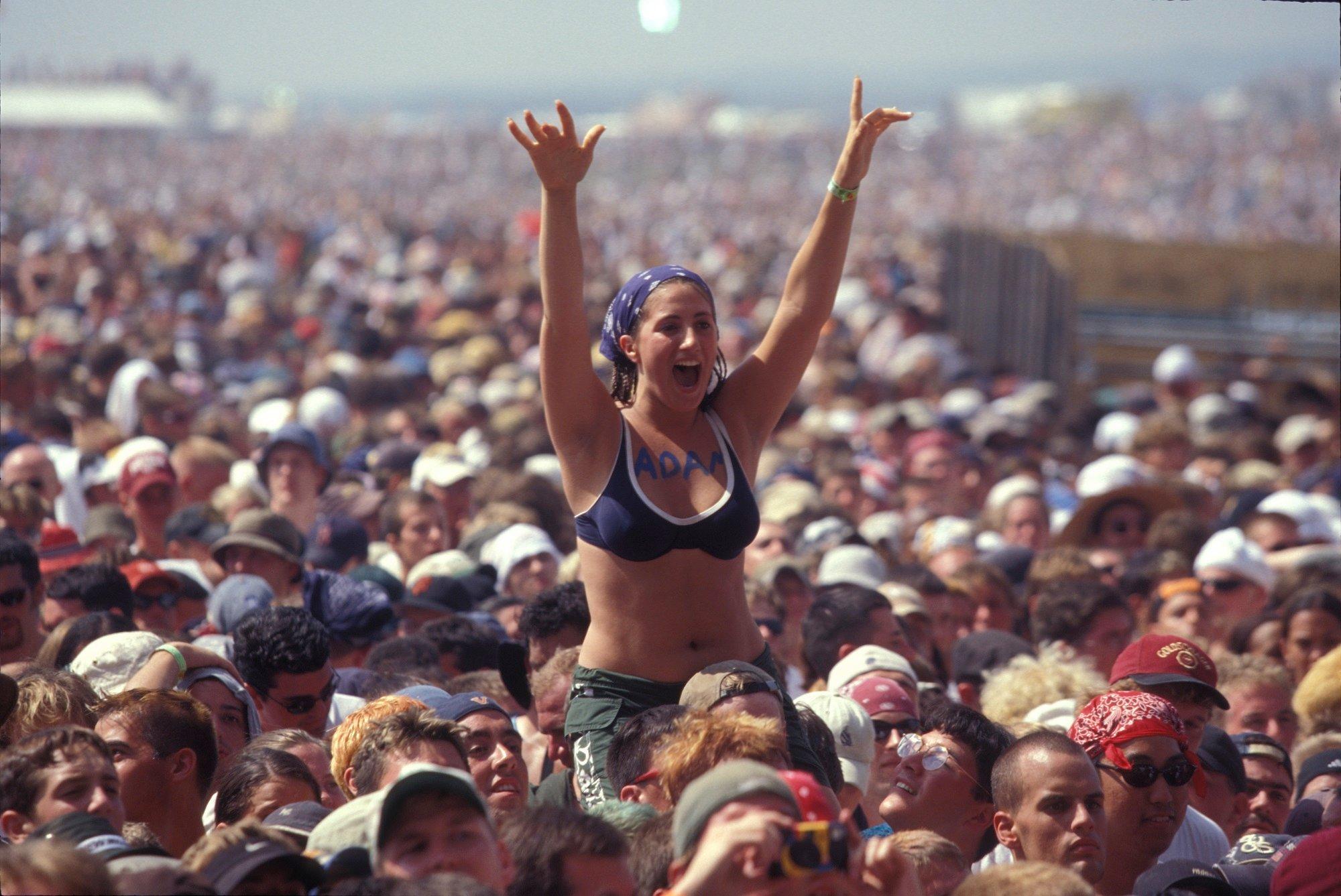
Photo: Getty Images/John Atashian
feature
On This Day In Music: Woodstock '94 Begins In Upstate New York
Held 30 years ago Aug. 12-14, Woodstock '94 featured an eclectic (and muddy) lineup that launched Nine Inch Nails, Green Day and others into the limelight.
Woodstock '94 is no middle child music festival. While not as groundbreaking as Woodstock '69 or as infamous as Woodstock '99, Woodstock '94 boasts a unique legacy that deserves recognition.
Held Aug. 12-14 in the Hudson Valley town of Saugerties, New York, Woodstock '94 was set to commemorate the silver anniversary of the original Woodstock festival in 1969. Nodding to its origins in '69, Woodstock '94 was billed as "2 More Days of Peace and Music" (a third day of the festival was eventually added).
Woodstock '94 featured a wide range of acts that both reflected the nostalgia of Woodstock '69 and highlighted a myriad of new groups. Original Woodstock performers such as Crosby, Stills & Nash (minus Neil Young) and Santana topped the bill, and now-household names including Green Day and Red Hot Chili Peppers performed some of their earliest festival sets.
Even Bob Dylan, who initially declined an appearance at Woodstock '69 despite living near the festival at the time, had a change of heart and agreed to play at Woodstock '94.
It seemed that everyone wanted to capture a sliver of the magic from the original Woodstock. Although roughly 164,000 tickets were sold, the actual number of attendees exceeded 350,000 (surpassing even Coachella 2024's attendance rates).
Spirits were high as the festival opened on Friday with dry, sunny skies highlighting performances from Sheryl Crow, Collective Soul, and others. By the weekend, the weather took a turn and transformed the festival grounds at Winston Farm in Saugerties into a giant muddy puddle. Although Woodstock '69 was also rainy and mud-filled, the madness that ensued at Woodstock '94 led it to be dubbed "Mudstock."
As Primus performed "My Name Is Mud" on Saturday, festival-goers seized the opportunity to fling the wet dirt at the band on stage.
"Once I started singing the words to "My Name Is Mud," all of a sudden huge chunks of sod started flying my way and it was pretty frightening," Primus' lead singer told Billboard 20 years later. "I still have those [speaker] cabinets to this day, and those cabinets still have mud in them."
With high energy from Friday's acts and some mud-induced chaos, attendees were buzzing with anticipation and excitement for the rest of the weekend. The party atmosphere continued throughout day two — and not solely because Blind Melon lead vocalist Shannon Hoon strolled on stage tripping on acid, wearing his girlfriend's dress.
Aerosmith may have been day two headliners, but Nine Inch Nails' 15-song set remains a highlight of Woodstock '94. The band drew the biggest crowd of the festival, and were catapulted into wider mainstream visibility. Taking advantage of the unpredictable weather, then-bassist Danny Lohner pushed lead vocalist Trent Reznor into the mud, prompting Reznor to retaliate. The other members of the band soon joined in on the fun, strutting onto the stage covered in mud.
Opening with Pretty Hate Machine's "Terrible Lie," NIN turned the massive audience into a giant mosh pit and maintained that high energy until the end of the set. While the band faced technological difficulties onstage, it only seemed to enhance their raw, gritty image.
The set was so celebrated that it is forever memorialized in the Rock & Roll Hall of Fame, with art installations featuring a life-sized mannequin replica of Reznor singing into the microphone and his keyboard, both covered in mud.
By day three, Woodstock '94 was clearly becoming an iconic music festival that would be discussed for years to come. If Saturday's mud-slinging electric performances weren't enough, the final day of the festival featured performances from Green Day, Red Hot Chili Peppers, Bob Dylan, Santana, and others.
When Green Day — fresh off the success of their third studio album Dookie — took the stage, all hell broke loose. While the band was and continues to be known for their rowdy live sets, their performance at Woodstock '94 remains unmatched.
By the time Green Day started performing, the fairgrounds had turned into a full-blown mud fight. The band tried to push through the performance and embrace the chaos, but the set came to an abrupt stop when lead singer Billie Joe Armstrong told the crowd, "Everybody say shut the f— up and we’ll stop playing." When the crowd shouted the phrase back, Armstrong said goodbye on behalf of the band, and the rest of the group fled the stage.
By the end of the performance, lead singer Billie Joe Armstrong had lost his pants and the band had to be escorted out of the festival grounds by a helicopter. On their way off the stage, security confused mud-covered bassist Mike Dirnt for a crazed fan and tackled him, leaving him with five fewer teeth than he started the set with.
"He actually sheared my teeth, and I blew like five teeth. Only one of them died. I fixed the rest of them, but he all sheared up the back of my teeth," Dirnt confessed to The Aquarian in 2013. "It was horrible. But the great thing about it is that I was able to get out of there, and I'd do it again tomorrow if I had to."
Peter Gabriel closed out the weekend by remaining true to the original mission of the festival, offering fans peace filled with good vibes. Gabriel's music, though deeply contrasting with the hard rock and punk acts that dominated the festival, provided a flawless end to the chaos that had unfolded over the past three days.
While the 1994 installment of Woodstock hasn't basked in the same spotlight as its 1969 and 1999 siblings — the latter of which has been the subject of two documentaries in as many years — it remains far from forgotten.
Woodstock '94 stands as one of the legendary music festivals of all time. Although the rain may have soaked the grounds, turning it into a muddy catastrophe, it also nourished the roots of some of the most iconic musical acts and sent them into the mainstream media. The festival was more than just a series of performances, but rather a unique cultural event.
Latest Music Festival News

On This Day In Music: Woodstock '94 Begins In Upstate New York
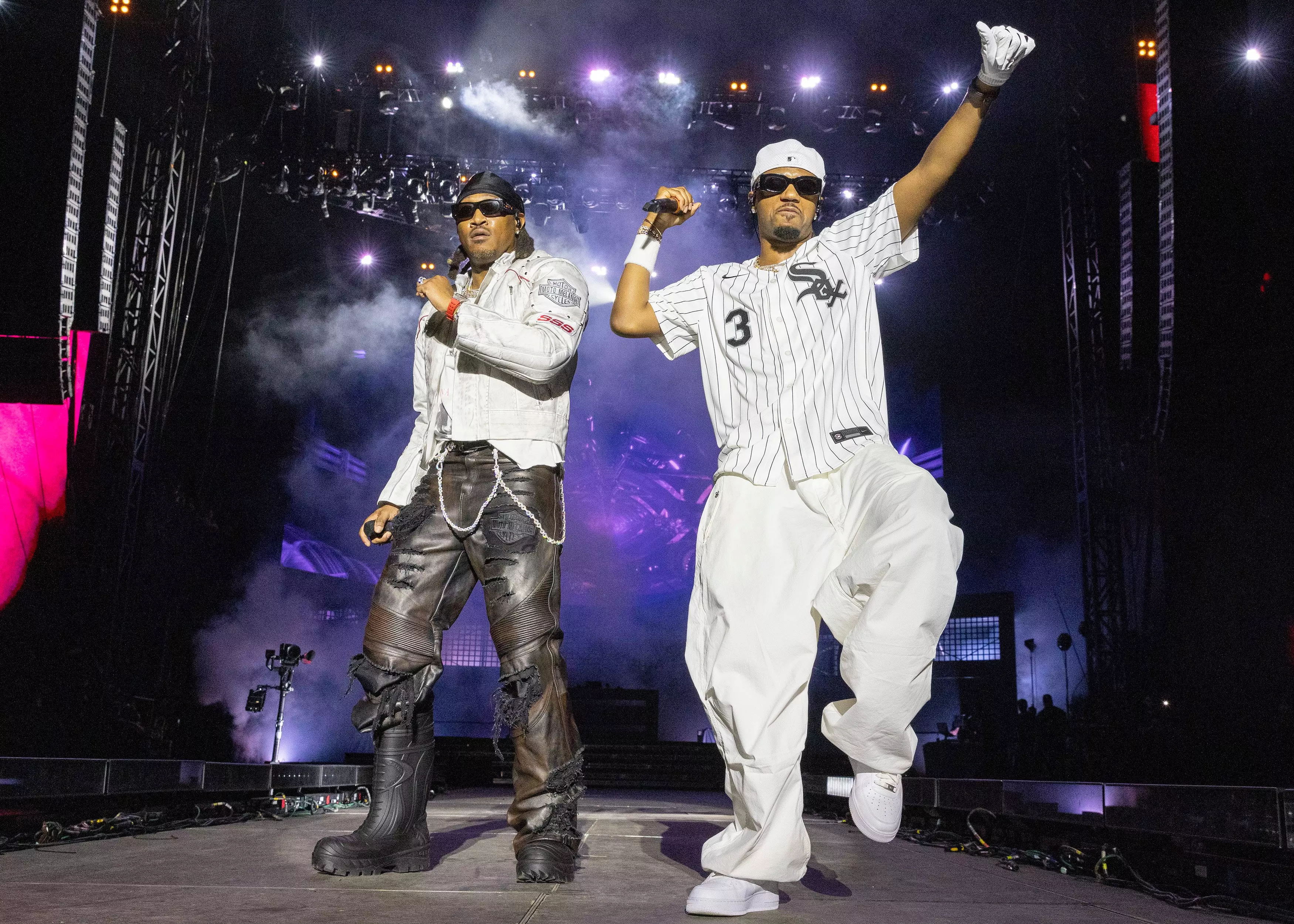
7 Stellar Sets From Lollapalooza 2024: Megan Thee Stallion, Future x Metro Boomin & More
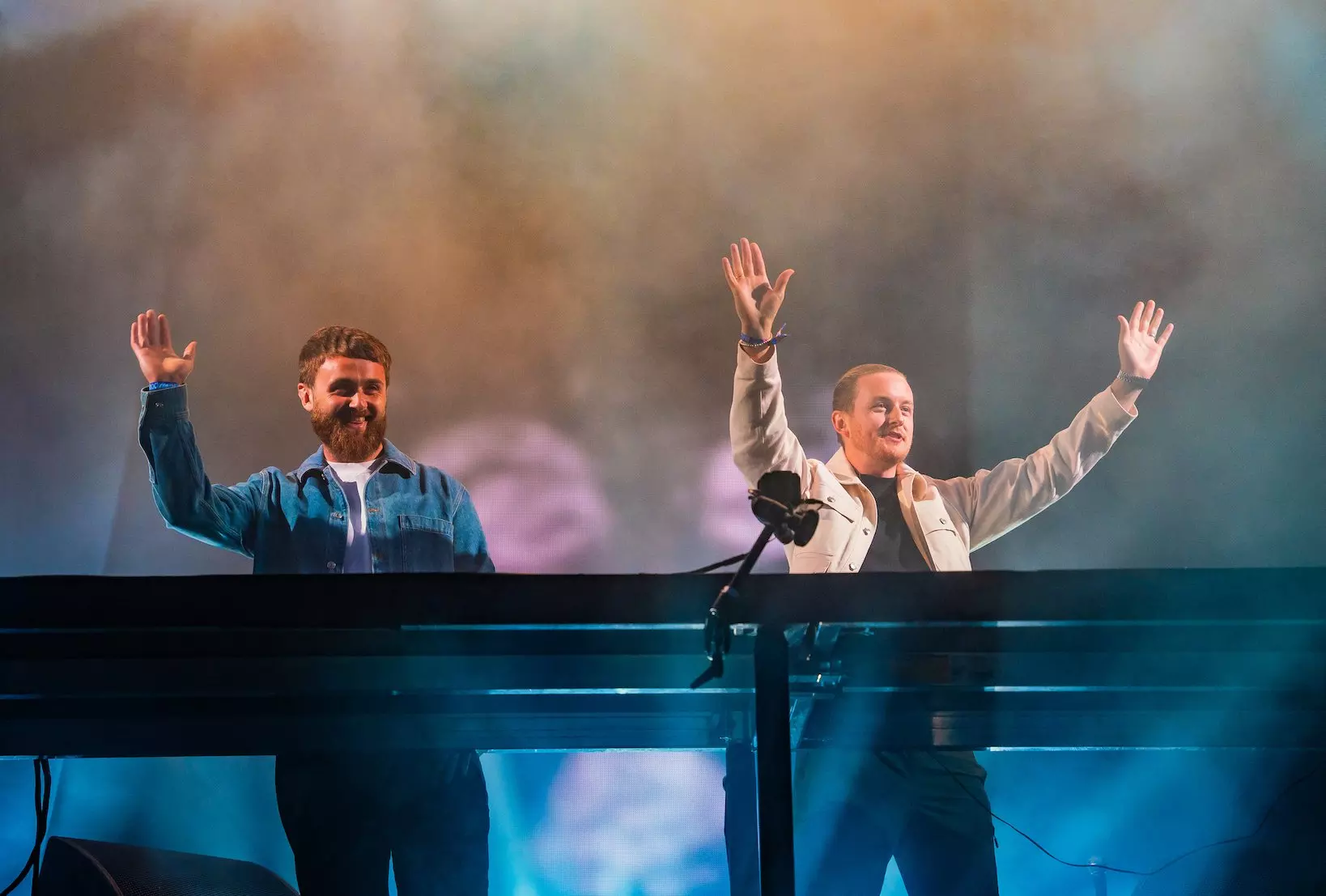
10 Cant-Miss Sets At HARD Summer 2024: Disclosure, Boys Noize, INVT & More
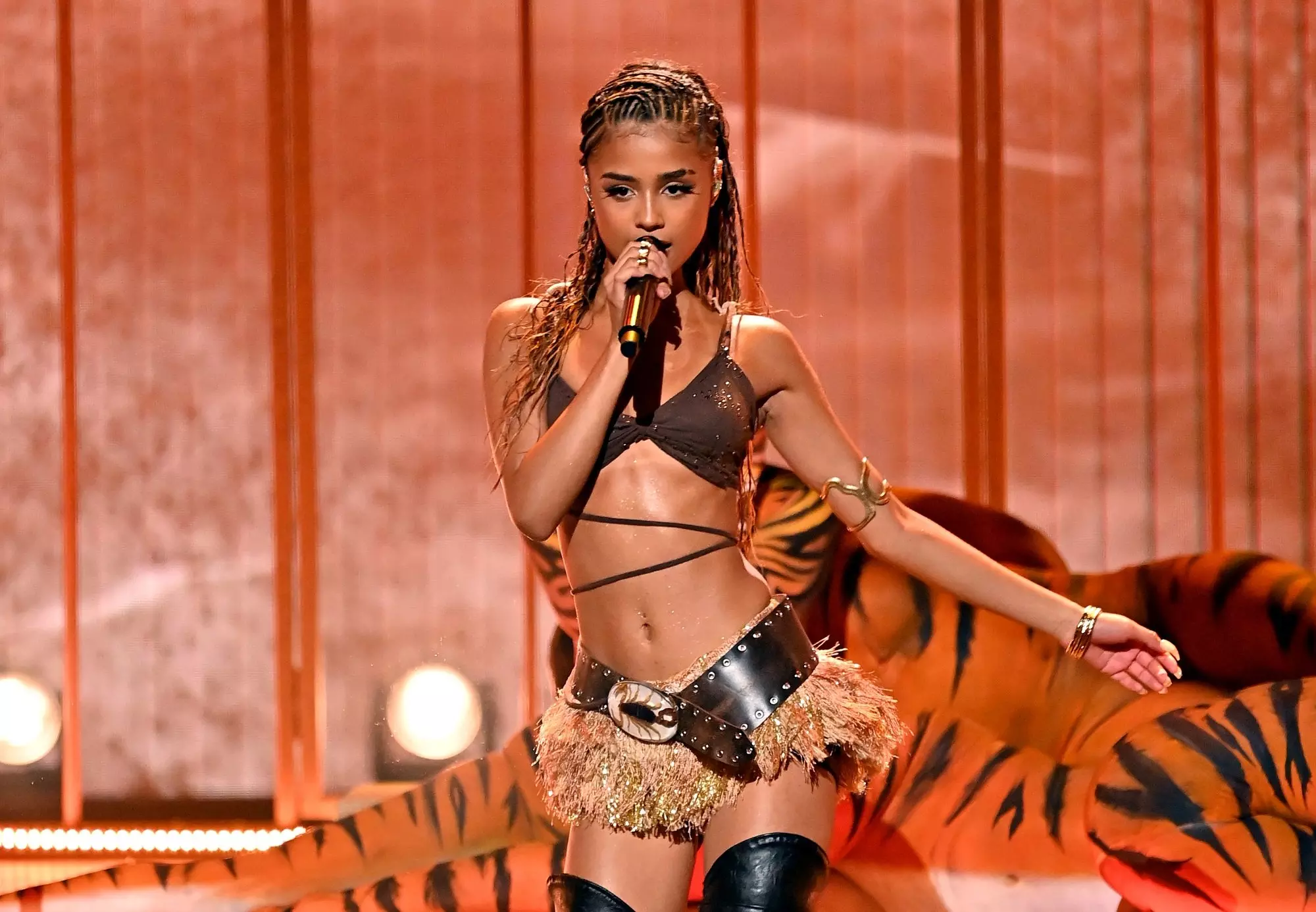
10 Must-See Acts At Lollapalooza 2024: Tyla, SiR, Stray Kids, Dominic Fike & More
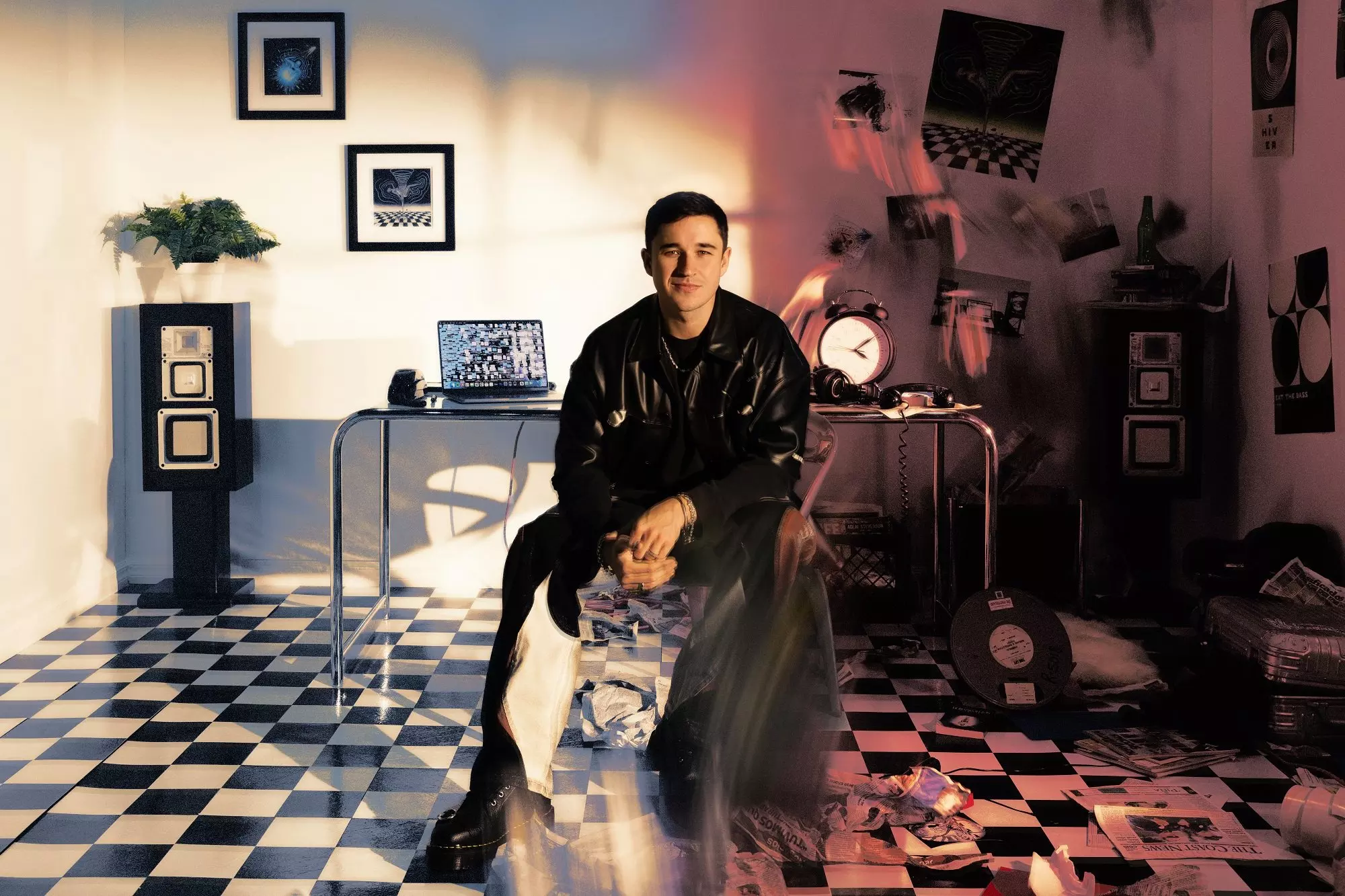
Finding 'Comfort In Chaos': John Summit On The Journey To His Debut Album
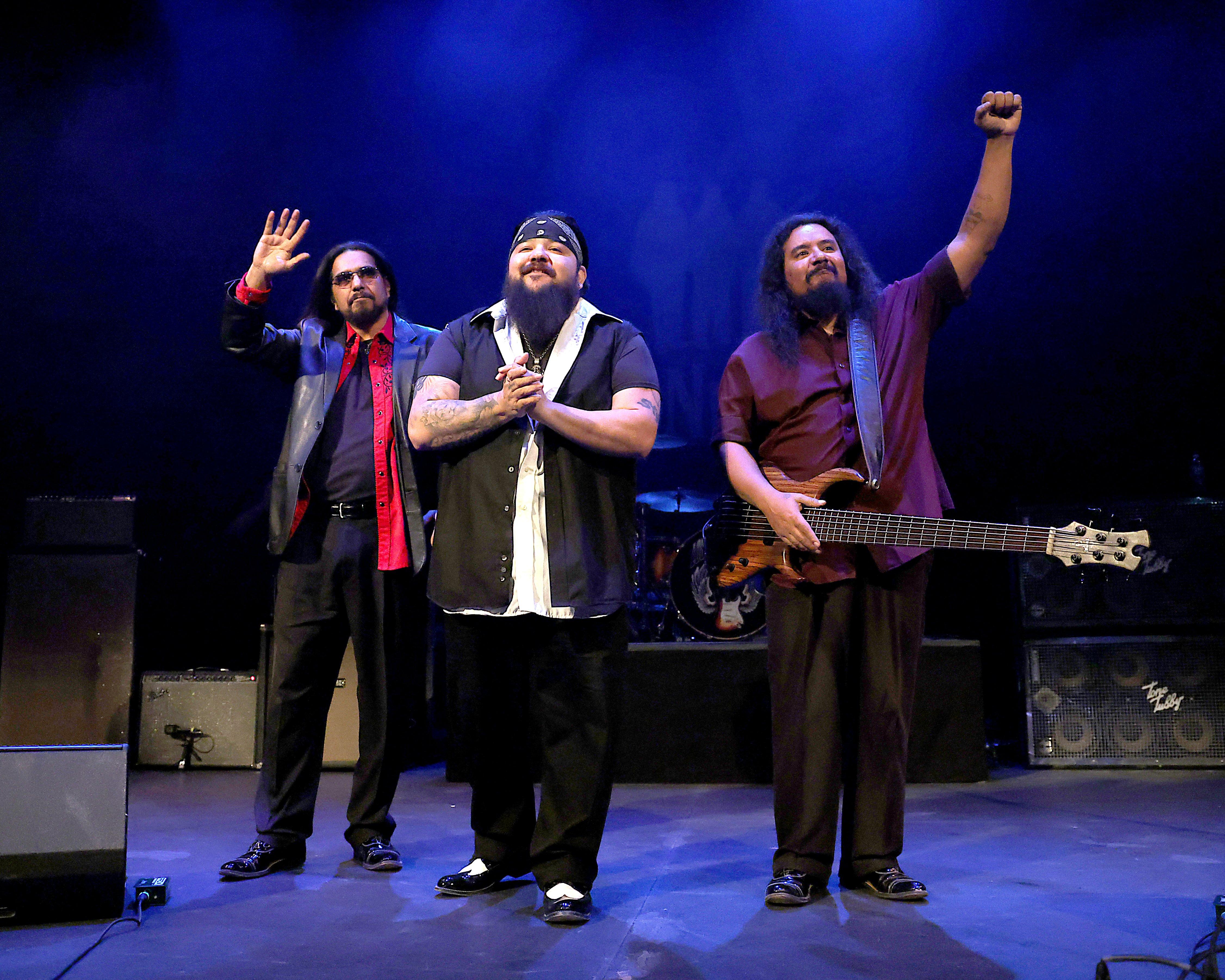
Photo: Gary Miller/Getty Images
interview
Los Lonely Boys Resurrected: The Sibling Rockers Talk Their New Album, Return To The Road & Family Magic
"When we got back together and started jamming…it just felt right, fresh," says Ringo Garza. Along with brothers JoJo and Henry, Los Lonely Boys share how their love for music and family led to their first album in 11 years, 'Resurrection.'
Los Lonely Boys have found success in spades over the past two decades, thanks in no small part to their familial bonds.
Following in the footsteps of their musician father Enrique Garza, Mexican American brothers JoJo (vocals, bass), Henry (guitar, vocals) and Ringo Garza (drums, vocals) formed Los Lonely Boys in 1997. Their dynamic, "Texican Rock ‘n Roll" sound netted the group a GRAMMY in 2005, as well as five career total nominations. Throughout their career, togetherness has remained an important component of their artistry.
"We're homebodies, we're family men and this is where we're most happy," JoJo Garza tells GRAMMY.com. "But when we get out there and we're on stage and we're in a different city, different state or whatever, the way that people make us feel like family is, it's a home away from home feeling."
That feeling inspired the band to reunite in 2022 after a four-year hiatus. Their return tour, which included several shows with the Who, went so well that they decided to also get back into the studio and record new music. On Aug. 2, the band will release their first album of new music in 11 years, Resurrection. Each song on the album sounds different, highlighting Los Lonely Boys' roots in Texas blues, soul, country, and Tejano music.
"When we got back together and started jamming, I think the rejuvenation, it came natural, the same, and it just felt right, fresh," says Ringo Garza. "I think our playing is the same as anything that gets older. If it doesn't start to rot, it gets better."
The Garza brothers have built their success through belief in one another. It paid off early on, when San Angelo, Texas club owner John R. Steele hired the group as his house band (and later became LLB's road manager). They also supported their musician father before branching out as a trio. In 2003, they struck gold when they got the opportunity to record their self-titled debut album at Willie Nelson's Pedernales Recording Studio in Austin.
Released in 2004, Los Lonely Boys' lead single, "Heaven," hit No. 1 on the Billboard adult contemporary chart and reached the top 40 on the Billboard Hot 100. The following year, the song took home a golden gramophone for Best Pop Performance by a Duo or Group with Vocal.
Their success allowed them the chance to collaborate with the other musicians. Los Lonely Boys partnered with Santana on 2005's "I Don’t Wanna Lose Your Love," performed with Ronnie Milsap on an episode of "CMT's Crossroads," and released music with Dr. John, Enrique Garza Sr. and Willie Nelson. LLB also released a string of popular studio albums, including 2006’s Sacred, 2008’s Forgiven, 2011’s Rockpango, and 2013’s Revelation.
Recorded in part at Henry’s home studio in Texas, Resurrection finds the trio continuing to channel their love of making music together. Their unique sound continues on the album, featuring everything from the Beatles-eque pop of "Wish You Would" to the smooth R&B and soulfulness of "Dance With Me."
Family continues to be important for the brothers. The album comes at a challenging period as they’ve tried to help and make their father comfortable after he suffered a stroke and heart attack earlier this summer. Ahead of the Resurrection's release, the group spoke with GRAMMY.com about the importance of their brotherly bond and how music has a magical quality that lets them connect with others.
This interview has been edited for clarity and brevity.
The new album is the band’s first in 11 years and comes on the heels of a recent return to the road. What brought everyone back together?
Henry Garza: We got to give all that credit to the man upstairs, brother. Of course, we could take some little bit of credit for that being brothers and family, but we accredit the higher power man. It's just the way things happen. It's like why are the stars in the places they are and why did that one shine brighter tonight than the last?
JoJo Garza: We need to pay our bills, man. I'm kidding. I mean, it is our livelihood, but it ultimately comes down to realizing that we still have a major purpose. While we have life in our bones, we still have a purpose to express what the creator has given us as a blessing, but also to express purpose in needing to show how important music is and what it means to us to do with it.
Henry: Yeah, we’ve got to still keep spreading that message of love through music.
What made the band start thinking about creating new music?
JoJo: We never stopped creating music. Even when we took our much-needed sabbatical, we were still in the process of always writing music. And I think when Covid happened, that really put a halt on what musicians could do as far as touring goes. So, we were able to really sort of almost start over. The songs that we chose for the album were given an ample amount of time to be something we felt really positive about.
Some of [those songs] are about having a good time and a lot of them are about life's lessons, but there's a few tunes in there too that are really, really deep as far as offering some input to the people, to the youth, as well as people in our age bracket as well.
JoJo: We were also personally affected by losing some family members and things like that, just like everyone across the world. Whenever we finally did regroup and saw each other for the first time, one of the first things we did was we gave each other big hugs and big kisses and a lot of crying.
I know that Henry and Ringo had done some work together. One of the first things I told Henry when I had heard "Send More Love" was the last time he had delivered a song like this it went global, we went worldwide. We won a GRAMMY.
It's got the basis of what was going on through Covid and it's kind of like a letter to or a phone call to the man upstairs saying, "Hey, could you send more love down here because this world is going crazy."
Was it challenging starting to play again after a few years apart?
Henry: Oh man. It was hard to remember any of the songs that we had played. It was a really emotional gettogether. When we first started rehearsing again together, every song that we played, even old songs, tears were falling because you just didn't know during that time if and when that was ever going to happen again.
Were there things the band was able to do better or differently on 'Resurrection' with everyone older and wiser?
JoJo: I think as far as the music goes, it’s very apparent that we have matured and grown. We actually embraced a little bit more of the digital aspect of what you can do in a studio.
Henry: There was growth during that period with technology for us and getting into the actual recording part of it ourselves and creating a studio to do the work in. We never had that gift or the comfortableness to be able to do that. We were always recording in somebody else's studio where you're paying a thousand dollars for every second that counts. So, we had some kind of freedom to be able to do that on our own and we grew in that aspect.
JoJo: We were always a live band, [that recorded live to tape]. The magic happens when you're live because then you can't go back and recut it or you can't go back and overdub it. Even when you record a live show, there's just a spark between each of us, a connection that it's really hard to capture. But building our own little studios and having the ability to do it ourselves, it's actually brought us closer and to the idea of maybe we should do a little more of this or a lot more of this instead of having to tour so much. So, that's in the cards for Los Lonely Boys as well. Squad goals.
My brothers gave me the opportunity to sit in the producer's seat on most of these songs. I was actually mixing some of the record while driving from Texas to California, listening in the car speakers. I was able to tell him, "Oh no, this has too much bass. We need to move that to the left or the right. Let's swap places." The ability to do that. Mix a record while you're driving. Come on man.
The band’s sound has been called "Texican Rock n' Roll" due to the diverse influences and that continues with this new album. Why is it important to have that dynamic, diversified sound?
Henry: We created what we call Texican rock and roll, which is anything and everything that has to do with real music from real musicians. This record really still expresses that about what we're about: family, love, brothers, the message of truth through music and resurrection. There's a little bit of flavor of everything in these songs, so it's kind of hard to just classify it as a certain genre.
Ringo Garza: Every single one of our albums has always had a song that you could put in another genre of music, country or pop or rock.
JoJo: It really is because we don't see or feel the boundaries between music. What we promote is not exclusivity, but inclusiveness because we're all one people…We're the human race and music is food for the soul.
Henry: Our dad taught us that music was the universal language, it didn't matter where you were from even if you didn't understand what they were saying. It speaks to everybody all across the board. I think that's our main focus with music.
Ringo: When I'm recording drum tracks or vocal tracks, I want my brothers to be impressed more than anything in the world. My brothers and my family. When we can get a song together and it brings a tear to our eyes and makes us love each other even more, that's what I strive for.I think my brothers are the same in that aspect of trying to impress and please one another.
You've all followed in the footsteps of your father, who himself had a band with his brothers called the Falcones. Why is that brotherly bond and honoring tradition so important?
Henry: If you can imagine a cup being filled with water and it spills over and there's another cup that takes on that water too. Our dad did it with his brothers, our mom's family did it with their brothers and my grandpa. Music was so natural, we thought everybody did it growing up. We owe all that to our greatest teacher, which of course for us is our dad. It began with him, and he’s our biggest hero.
He's the guy that showed us anything from the Beatles to Willie [Nelson] and Waylon [Jennings] to Richie Valens to Fats Domino. Every song he showed us growing up, we thought he wrote all those songs that he was showing us, and we believed he came on the radio, and we'd be like, "They're playing your song." He didn't deny it either.
Ringo: Having each other to play in this band together, it was just as natural as being brothers. I think when we were younger, we knew that we were brothers and we were a band, but I don't think that really dawned on us until we started playing out everywhere and knowing that there's not too many bands of brothers. I think that's where our strength comes from.
JoJo: We're family first. Even if we were doctors or we were lawyers or roofers, we were always going to stick together because that's the way we were raised. That's part of our destiny and that's part of what we're here to express. As beautiful it is as it is to have friends and extended family or whatnot. There's nothing like having true family, true blood.
This year marks the 20th anniversary of Los Lonely Boys' debut album and one of your biggest hits "Heaven." What do you recall about recording that record?
Henry: The way we grew up, we had zero expectations for anything because it just wasn't in the cards for where we came from. We were completely shocked and completely amazed when we were grabbing success.
Ringo: When we were younger playing and writing and recording, we knew that if we continued something was going to happen. But I don't think that we ever thought to ourselves, Hey, let's put this on the album so we can win a GRAMMY or so that we can sell millions of records.
JoJo: We have a very close connection to all the songs [on our debut album], but when it came to "Heaven," that was the only song that it seemed like everybody would pick on. All the people that were the Lonely team [were] basically saying that they didn't see nothing special in that song. The special thing to us was that it was a prayer that Henry had written that he was instructed to write down as a song. So, what a turn of events for everyone that said "nay" to have it turned up being the song.
Ringo: The first single was supposed to be "Real Emotions," and when we sent out [our music to radio stations in Austin], DJ Jody Denberg played "Heaven" instead. It lit the fire. It stayed up there [on the charts] for a little bit, and it broke. We're still able to reap the benefits of that.
What was your favorite memory of working at Willie's studio?
Henry: We can't talk about that man. Oh man. [Laughs.]
JoJo: The fact that we were there in a place that belonged to Willie Nelson. We had seen him on TV and heard him on the radio or whatever, you don't imagine that you're going to be that close to people. Basically, that was his home away from home. And so that's pretty freaking huge, man.
Henry: I'll never forget him driving up in his pickup and visiting us while we were outside drinking a couple of herbal refreshments. He treated us just like family. There's a lot of things to remember, but I think the fact that Willie was even around or took the time to make that connection with us.
JoJo: We were able to start meeting other artists and things like that, but he was the first one that said "these guys got something special. You might want to check him out."
Henry: Right around that time when we were recording the record, 9/11 had happened. "Heaven" was the only song that was recorded that day, on the day that the Twin Towers were hit and everything, man.
You later recorded a song with Willie and your dad called "Outlaws." What was your favorite memory from working on that song?
Henry: Our dad always considered himself the missing outlaw. So just to be working with Willie and having our dad work with him and be on the same song, man, that was the treat in itself. TWhen we hear that song, it's like tears to the eye because we were given the blessing to help our dad's dream come true a little bit.
Ringo: And it's a rocking song. It's pretty badass.
The album’s title 'Resurrection' continues the trend of using religious terminology. What drew you to that word?
JoJo: You can definitely tie it to religion, but resurrection exists without religion. When you look at how grass dies every winter and comes back to life and how trees, leaves fall through the fall and the winter and then they return. And resurrection is also like music. It's a gift that most people don't recognize as a gift or as something considered resurrection.
The reason we chose the term resurrection is because we were off the road for nearly three years and we weren't even sure we were going to play again. When we finally made that decision to come back I felt like…I mentioned the trees, the grass, how the sun rises and sets every day. It's a constant resurrection.We were given a chance to breathe new life into something.
Ringo: I love the fact that it does bring people closer to our father, closer to the love of this world in just that name.
Henry: When you got a band like us who won a GRAMMY for a song called "Heaven," and I think that speaks all in itself. So, when you hear a name title for a record called Resurrection, it ties into what we believe and how we were brought up, but it's definitely not something that we were going to go off and say that "Hey, this is religious."
What songs from the album surprised you most and how they came together?
Henry: Oh man, all of them. Songs seem to come out of thin air sometimes. Even when you try to write a song, it doesn't [always] happen. So, all of them are really just a surprise.
JoJo: Our song "Natural Thing" is really special because something we had already had [written years ago]. The way Ringo delivered it, I can't wait for the rest of the world to be able to hear this song. Ringo usually sings one song per album or something like that, but this one is very dear to us, but it's also very dear to Ringo because he sang it to his wife at their wedding.
Henry: It's a resurrected song.
JoJo: It really is. That's the true resurrection on the album.
The band's song "Wish You Would" has a pretty encouraging message about going for your dreams, while being careful. And conscient. Has becoming parents and grandparents shifted your perspective?
JoJo: We've been parents for a long time. Some of our oldest kids are in their twenties...There’s the old saying of "be careful what you wish for." If you're not careful about what you call dreams and aspirations, it can come with some serious consequences.
Another song on the album, "See Your Face" is a very emotional one as it pays tribute to your mother who passed away in 2015 as well as other family and friends. How was it helpful writing that song?
Henry: It's about our mother and how memories are in your head when you haven't seen someone for so long. You don't want to forget their face, but it's crazy how a memory pops up and you wish you could just hold it and control it.
Henry: Our dad had a massive stroke and a heart attack at the same time. And it's been a really tough time right now.
Ringo: It’s crazy how that song came out and the video and everything having to do with our mama and our dad is having a pretty rough time. Nothing is coincidental. Everything is meant to be, there's no such thing as coincidence.
JoJo: "Wish You Would" and "See Your Face" are kind of intertwined. That's one thing we're here to really express to people, is tell the people you love them or you're going to wish you would because someday you're going to be wishing just to see their face.
JoJo: Do it while you have the time, express to the people that mean the most to you, that they mean that to you.
Ringo: I think it ties into even "Send More Love" because I think a lot of that is being forgotten.
Henry: Love is growing cold in this world, man.
JoJo: We do music purely because first off, it's a given to us. Secondly, we do it purely for the music and each song that is given to us sort of appears out of thin air. It's definitely given from the creator of all things. There's nothing greater than being able to have the consciousness that we're given as human beings to be able to express these things so deeply.
The Latest News About Latin Music

Los Lonely Boys Resurrected: The Sibling Rockers Talk Their New Album, Return To The Road & Family Magic
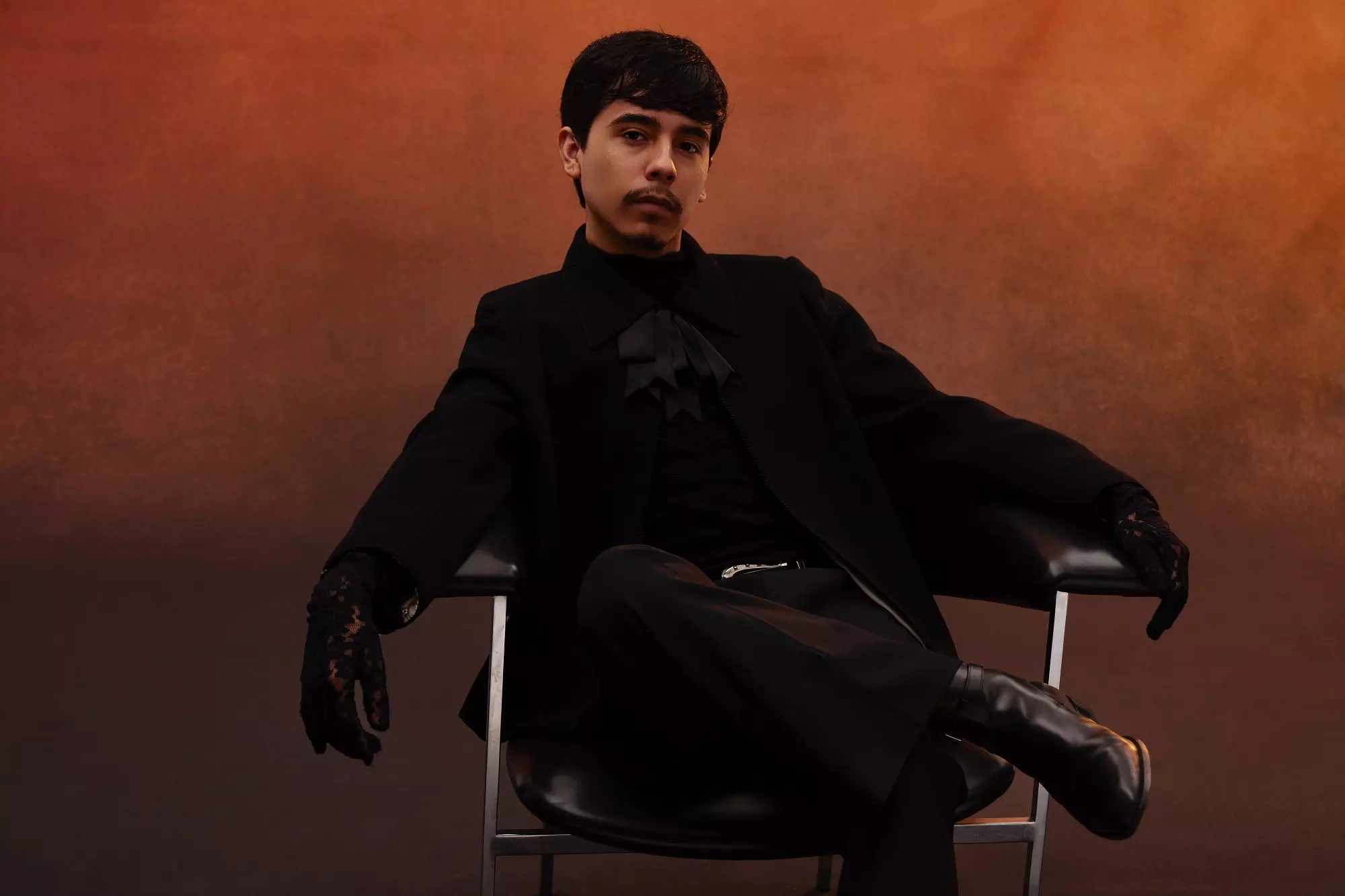
On 'Mirada,' Ivan Cornejo Redefines The Sound Of Sad Sierreño And Helps Fans Heal Through Music
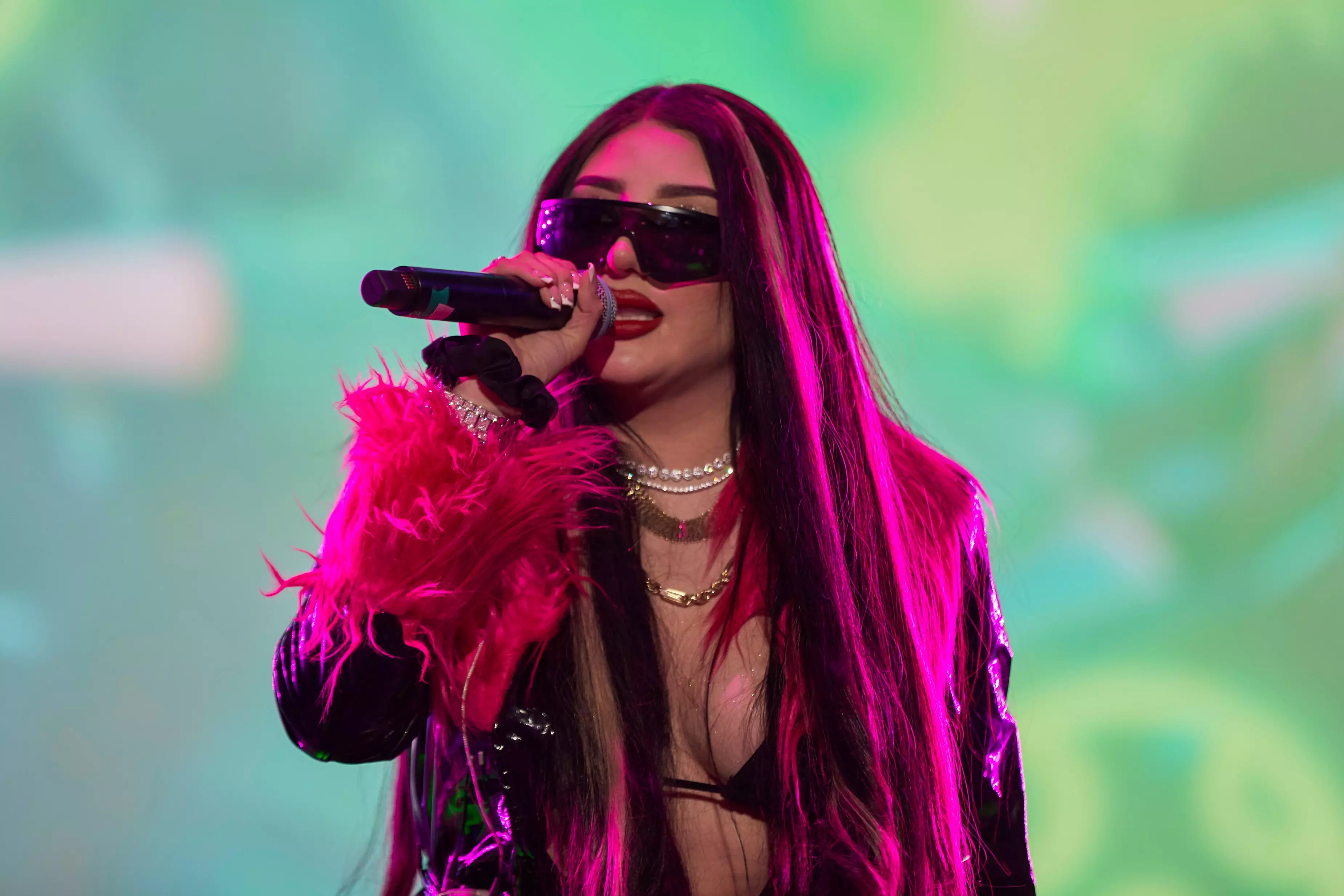
7 Artists Bringing Reggaeton Mexa To The World: El Malilla, Bellakath & More
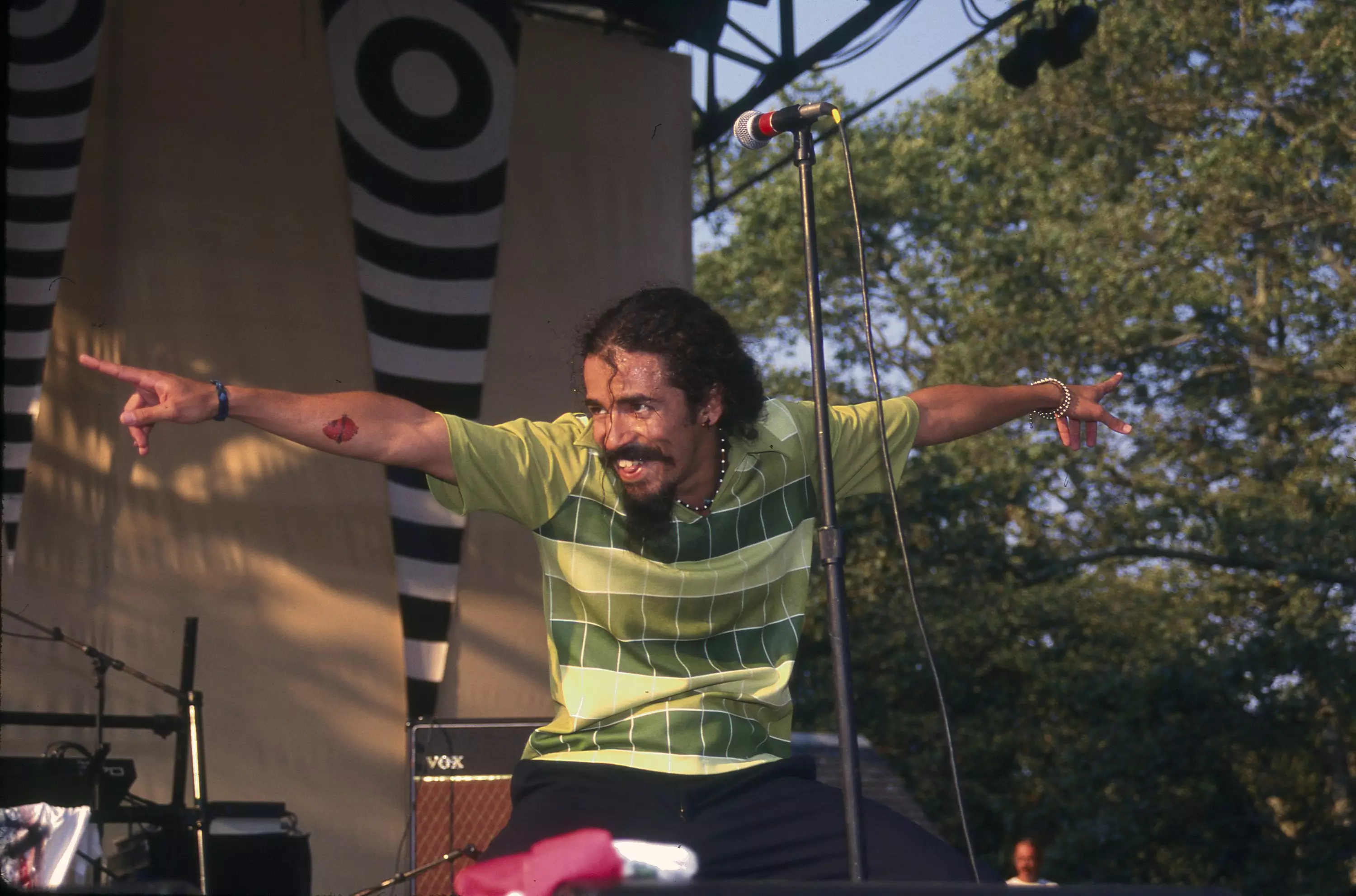
Revisiting 'Re': How Café Tacvba’s 1994 Masterpiece Changed Mexican Music Forever
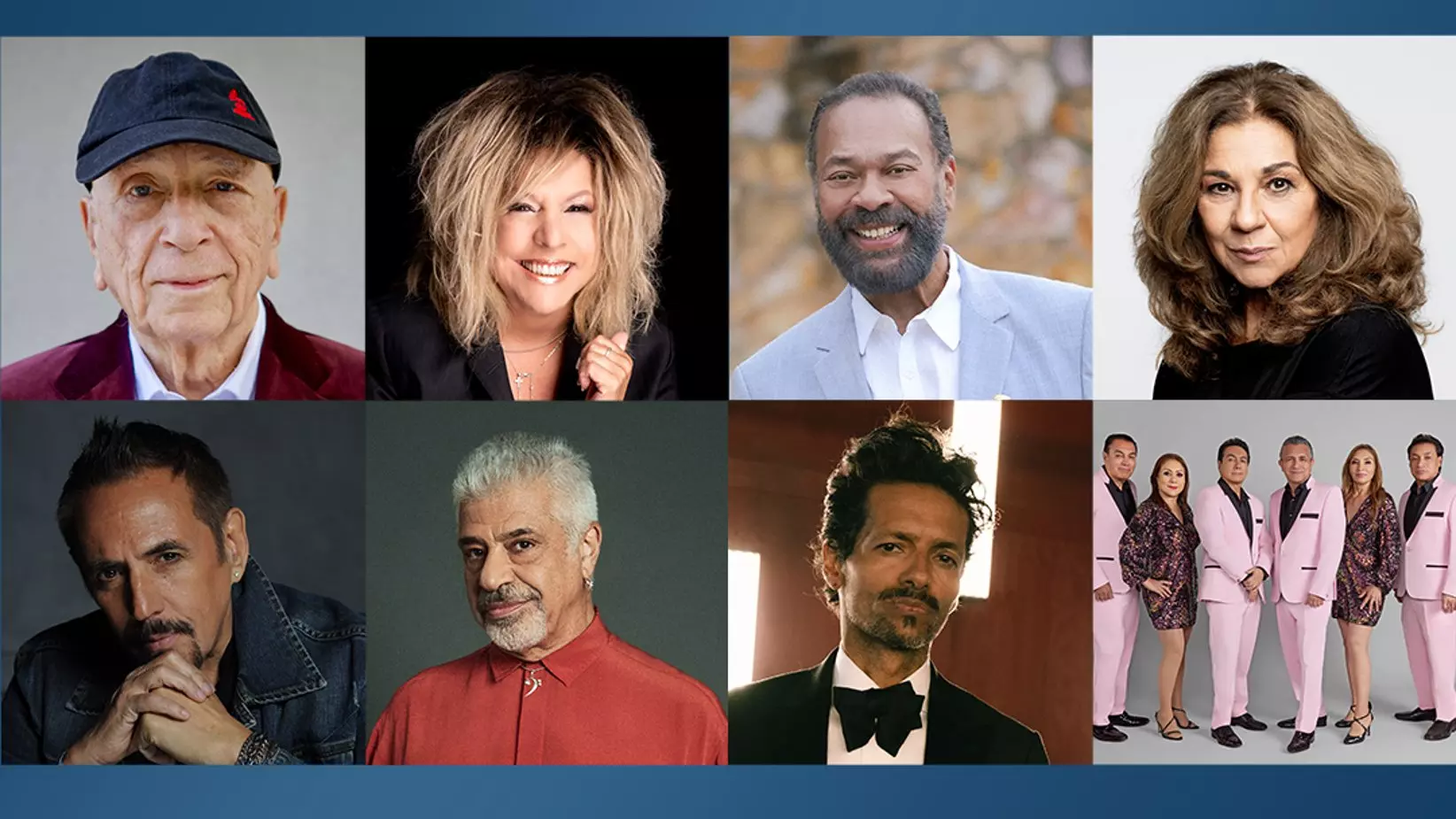
The Latin Recording Academy Announces 2024 Special Awards Recipients: Los Ángeles Azules, Draco Rosa, Albita, Lolita Flores & More

Photo: Rob Fenn
photo_gallery
Tour Diary: Inside The Pretty Reckless' Trek With AC/DC, When Taylor Momsen Became "Batgirl"
As The Pretty Reckless prepare for their last few shows on AC/DC's Power Up Tour, singer Taylor Momsen shares photos and highlights from their European adventure — rabies shots and all.
While she began her career as a child actor, Taylor Momsen has spent the past 14 years serving as the fearless frontwoman of rock group The Pretty Reckless. But perhaps no career milestone has been as much of a childhood dream come true for Momsen as their latest venture: AC/DC's Power Up Tour.
The Pretty Reckless are supporting the Australian rock gods during the European leg of the 24-show stadium tour, which kicked off in Gelsenkirchen, Germany on May 17 and wraps in Dublin on Aug. 17. As Momsen recalls, the opportunity came as the group was just beginning to work on their next album.
"We were in the studio…when I got a text from my agent that simply read 'AC/DC with the Pretty Reckless, all dates, no openers.' My mind was blown," she tells GRAMMY.com. "I love recording, probably more than anything in life, but when AC/DC calls…you answer, and you say YES. It's an honor and a privilege to be asked to share their stage."
Momsen makes sure to catch AC/DC's set every night, confirming that — even five decades into their career — they are "nothing short of a force of nature" on stage. And though the tour has resulted in rabies shots for Momsen (more on that later), the tour has been an experience she and her band will cherish forever.
"We're having the time of our lives with them," Momsen adds. "I never want this summer to end."
Below, Momsen shares stories of onstage and behind-the-scenes photos from The Pretty Reckless' summer tour with AC/DC — including the exact moment that she became "Batgirl."
Saying hello to a sold-out stadium in Gelsenkirchen, Germany. AC/DC are in the DNA of our band, so to say we were excited is an understatement. (Veltins-Arena, Gelsenkirchen, Germany; photo by Rob Fenn)
The best part about touring with AC/DC? Getting to watch them every night.Here I'm with with my beloved manager Chris Ruff with the titans of rock behind us. (Veltins-Arena, Gelsenkirchen, Germany; photo by Steph Gomez)
So I guess now is a good time to talk about…the bat. I was just minding my own business singing (appropriately) "Witches Burn" [at our next show in Seville, Spain] when the audience all started pointing and screaming. It took til the end of the song to figure out what happened… (RCF Arena, Reggio Emilia, Italy; photo by Rob Fenn)
...but the jumbotrons caught it all. There it is, clinging to me. The noise must have scared the hell out of it. (Estadio de La Cartuja, Seville, Spain; photo courtesy of Taylor Momsen)
Then came the [rabies] shots…that was not fun for a loooong time. Ten shots over weeks in multiple countries. (Seville, Spain; photo courtesy of Taylor Momsen)
Then came the jokes. (All with love from the amazing AC/DC crew, love you Super!!) (Vienna, Austria; photo by Steph Gomez)
Then came the nickname Batgirl. Can't escape it, so just own it! (Vienna, Austria; photo by Steph Gomez)
When almost every show is over 100,000 people, you start to really see the scope of the impact rock and roll can have. It's a sea of people all there for the same reason: to ROCK. (Dresden, Germany; photo by Rob Fenn)
Packing for three months in Europe can be daunting…and bus parking lots are never the easiest place to organize. (Dresden, Germany; photo by Steph Gomez)
A rainy night in Dresden on one of the most beautiful streets I've ever seen. (Dresden, Germany; photo by Taylor Momsen)
Getting stage ready… (Wembley Stadium, London, England; photo by Rob Fenn)
Hello Wembley! (Wembley Stadium, London, England; photo by Rob Fenn)
Getting to hang with these amazing people makes everything worth it. I can't thank them enough, but to show my love for AC/DC I had to do something. (Wembley Stadium, London, England; photo courtesy of Taylor Momsen)
So we made them a life sized cake of Angus's infamous Back in Black guitar. (Wembley Stadium, London, England; photo courtesy of Taylor Momsen)
Jamie's drum rack is like an anchor for me on stage, it's how I find my center. (Hockenheimring, Hockenheim, Germany; photo by Rob Fenn)
When you show up to a country you've never been to and there's back to back murals of yourself and Angus, you feel humbled for sure, it's been an amazing ride so far beyond our wildest dreams. (Bratislava, Slovakia; photo courtesy of Taylor Momsen)
In the end, it's all about the music, the passion, the love, the power. It's an honor to be able to do this, and to share it with so many people, and to have icons whose posters you had on your wall as a kid and t-shirts you wear til there's holes in them invite you to join them on an amazing journey. Thank you to AC/DC and crew, and everyone involved in such a massive undertaking to bring music to the masses. My love to you all. (London, England; photo by Rob Fenn)
Latest News & Exclusive Videos

Dave Navarro Talks Jane's Addiction's "Imminent Redemption" & The Foursome’s "Secret Sauce"

On This Day In Music: Woodstock '94 Begins In Upstate New York
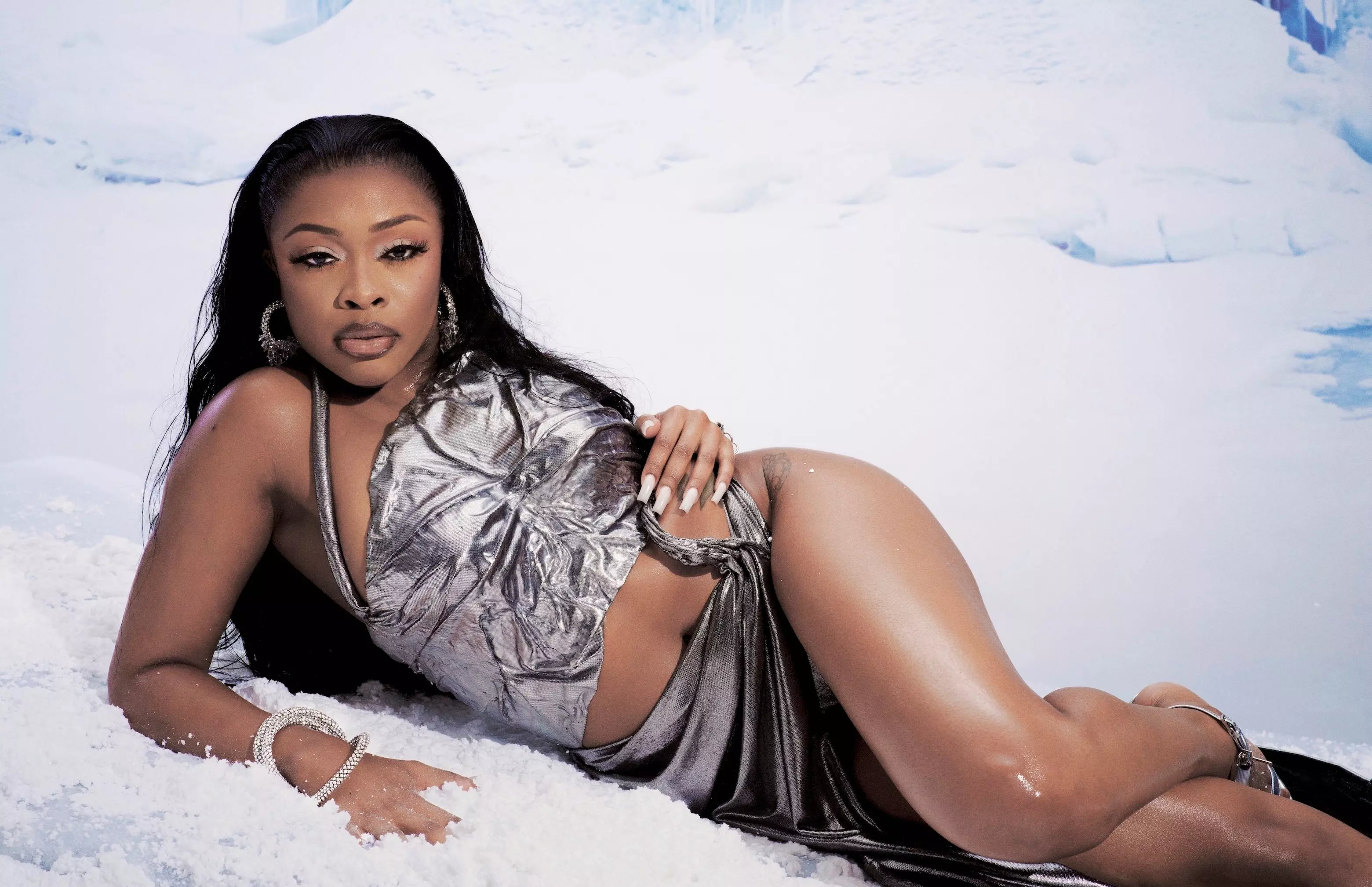
With Her 'Winter's Diary' Return, Tink Is Ready To Rep For "The Girls Going Through It"
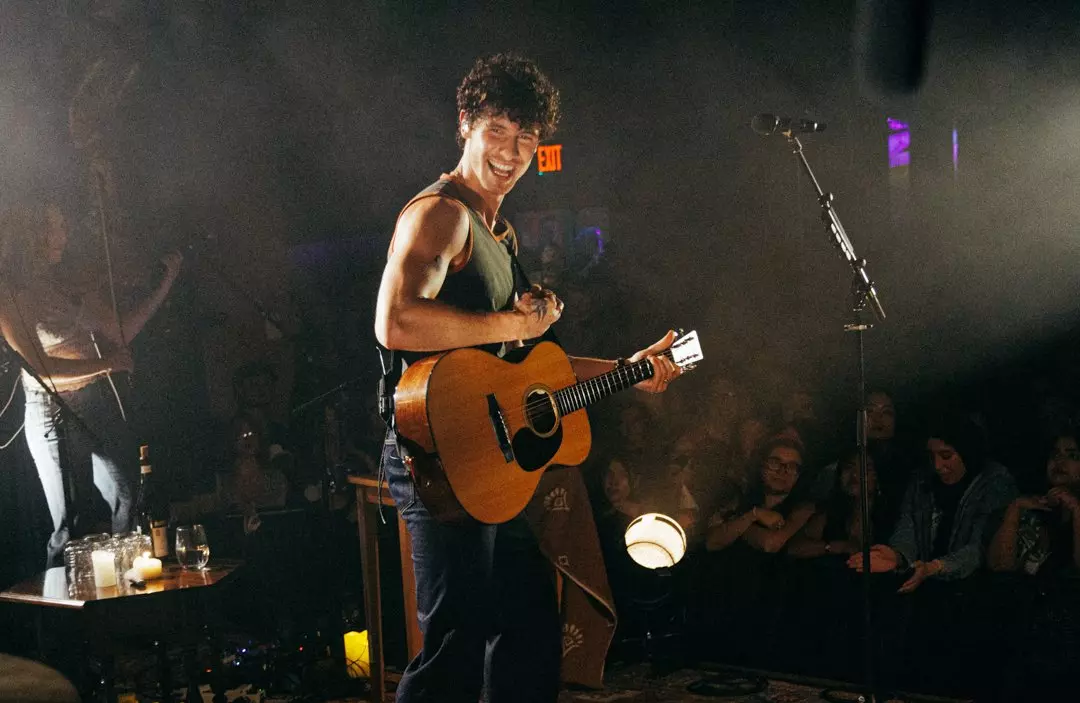
New Music Friday: Listen To New Songs From ATEEZ & G-Eazy, Shawn Mendes, Latto, & More

Watch Alanis Morissette Win At The 1999 GRAMMYs

Photo: Robby Klein
interview
HARDY On New Album 'Quit!!' & How "Trying To Push My Own Boundaries" Has Paid Off
On his third album, the self-described "black sheep" of country music proves he's here to stay.
Haters take note: nothing fires up a country boy like HARDY more than a naysayer. And this redneck has a long memory.
Despite the coveted catalog of country music hits to his credit — tunes he wrote for artists like Florida Georgia Line, Blake Shelton and Morgan Wallen, plus his own work as a solo artist — HARDY's third album begins with a three-minute response to a heckler who once left a nasty note in his jar in place of a tip.
That moment may have occurred a decade ago, but it's key to HARDY's defiant persona. In fact, the album's title is exactly what that note read — Quit!! — and its cover art is the actual napkin the message was written on, which the singer/songwriter has held on to all these years.
HARDY laughs off the memory at first, but as the title track plays on, his olive branch soon turns to coal. "I'm not the GOAT, I'm the black sheep hell-bent to find closure," he barks as the song escalates. "I can't let go — a note somebody wrote like ten years ago put a chip on my shoulder. If you wanted me to quit, you should've saved it, bro."
The takeaway here? HARDY won't quit. Or, to quote another Quit!! banger, "I DON'T MISS," when a hit is in the crosshairs, he "don't hit nothing but the bull's eye."
No doubt, he has the numbers to back it up. HARDY linked up with Florida Georgia Line after moving to Nashville in the 2010s, and landed his first country No. 1 as a songwriter in 2018 thanks to the duo and Wallen, with the smash "Up Down." As he began building a solo career — releasing a pair of EPs in 2018 (This Ole Boy) and 2019 (Where to Find Me) — he continued delivering chart-topping hits for FGL, Shelton, LOCASH, Wallen, Dierks Bentley, and more. As Quit!! arrives, HARDY boasts 15 No. 1 hits: 11 as a songwriter, and four as an artist.
Along the way, HARDY also established his Hixtape series, a countrified version of a hip-hop mixtape now three volumes deep, bringing together friends and superstars like Keith Urban, Trace Adkins, Thomas Rhett and a host of other stars to collaborate. Not only did Hixtape Vol. 1 land HARDY his first No. 1 as an artist in his own right — the Lauren Alaina and Devin Dawson team-up "ONE BEER" — but it put HARDY's shapeshifting musicality front and center.
"A lot of people ask, 'When did you decide to jump into the rock and roll thing?' HARDY, who uses his last name as his stage name, says. "I feel like I've always dipped my toes in it here and there, and a lot of my songs have been really close to it but not quite there. Hixtape, especially Vol. 1, I was definitely foreshadowing my sound, and I really didn't even know it at the time."
By now, modern country musicians regularly reflect influences from beyond Nashville's confines. But HARDY has played a big role in rock's country crossover, as he gradually showed more of his Mississippi-bred, guitar-riffing roots on his 2020 debut album, A ROCK. He fully embraced them on the 2023 double album, the mockingbird & THE CROW; while the first half has more country-oriented tunes like the Lainey Wilson-featuring murder ballad "wait in the truck," he lets loose on THE CROW.
"THE CROW will always be that cornerstone moment that defined who I am," he asserts. "It gave me the courage to do this Quit!! record."
HARDY has not only been an architect of this genre blending, but also its chief proponent — so much that in 2023, the L.A. Times crowned him "Nashville's nu-metal king." On Quit!!, he cashes in that currency with the gargantuan guitar riffs and bombastic beats popularized by acts like Limp Bizkit, and leans deeper into the rhythms and playful lyricism of hip-hop, a skill he recently flexed at the request of Jimmy Iovine and Dr. Dre on a hicked-up rendition of Snoop Dogg's G-funk classic "Gin and Juice."
Ironically, the further HARDY gets from straightforward country music, the closer he gets to who he really is as an artist. Below, the chart-topping star details the backstory of Quit!!, his conflicted relationship with the country-music formula, and how he'll continue pushing boundaries within the genre and beyond.
You grew up in the small town of Philadelphia, Mississippi. What role did music play in your upbringing?
My dad introduced me to rock and roll in general, but it was his era of rock and roll. Whatever you define as classic rock and everything under that umbrella. But music was a big deal in Philadelphia and it still is. There were tons of cover bands, and a lot of [my] buddies were into music. So that had a big influence on me.
I, thankfully, was in that last era of kids that the only time they got to hear a song was on MTV or on the radio. And I remember hearing "In the End" [by] Linkin Park, and then getting Hybrid Theory on CD. I remember the first time I saw [Limp Bizkit's] "Nookie" video on MTV. I was heavily influenced by all that stuff. I'm very thankful that I grew up in the era before the internet was really big.
Were you into country music back then?
Surprisingly, not at all. Not until Eric Church, Brad Paisley, a couple of people started singing about stuff that really piqued my interest. But no, I didn't really listen to much country.
I think the only country that I listened to, if you even call it that, was Charlie Daniels. He played at the Neshoba County Fair. I got to see him twice. But even he was more of, like, you'd almost call it more Southern rock. For some reason, country music at the time didn't do it for me. It took me a long time to get into it.
You recently re-envisioned "Gin and Juice." Were Snoop Dogg and Dr. Dre big artists for you when you were younger?
Yeah, especially Snoop. Snoop was in his later years when he started doing more pop stuff. I was a little too young for Doggystyle. I was 4 years old when Doggystyle came out, so my folks weren't letting me listen to that. But I will say, [Dr. Dre's 1992 album] The Chronic and especially [1999's] Chronic II, those records were huge. And anything that Dre touched after that, like all the beats he produced for 50 Cent, and obviously I'm a huge Eminem fan. I mean, all the way up to Kendrick [Lamar]'s early stuff.
I don't know how much they influenced me musically, but I definitely listened to both of them at the time.
You've got so many projects and co-writes and stuff going on, always. Is it easy to pinpoint where your journey to Quit!! began?
I can tell you for a stone-cold fact that "BOOTS" [from A ROCK] is responsible for the album Quit!! That was the first song that I ever wrote that had a breakdown in it. And when I played that live before it came out, people didn't know it, so it was a little different then. But once the song came out, and we started playing it live, it was bigger than "ONE BEER." It was bigger than "REDNECKER." It was the biggest song in our set, and to this day, it's still one of the biggest songs in the set.
But because I love the rock and roll sound so much, that's the song that I was like, Okay, this is working, because these people are losing their s— when we go into this song. So, then, that inspired me to write "SOLD OUT," and once "SOLD OUT" came out, and we started playing that song, that song was even bigger than "BOOTS," and it was heavier than "BOOTS." After "SOLD OUT," it was "JACK," and it's just a snowball of writing heavier songs and having the courage to keep going. "BOOTS" crawled so that Quit!! could run, you know? That was definitely the song that started it all.
The new album builds on the mockingbird & THE CROW and the direction you were heading.
Yeah, I think it builds on it maybe in the sense that there's a lot more screams, and maybe more breakdowns, and it's a little heavier than the mockingbird & THE CROW at times. But it is also very different. There's a lot more, like, pop-punk stuff and, I don't even know what you would call it, post-hardcore-sounding s—.
But all of the rock and roll stuff stands on the shoulders of THE CROW. It will always be that cornerstone moment that defined who I am. I mean, it definitely teed me up. It gave me the courage to do this Quit!! record.
I like that word, courage. It's not a word I expected to hear out of you based on your persona, but that's a very interesting way to phrase it.
No, I mean, the metal and country cultures are very, very, very different. There's never fear, but there's definitely, what's the right way to say that? You know, there's like when we throw like the goat horns and s— on the screen. Country has a big Christian background, and metal is like the exact opposite of that, and those can clash a lot, but there's definitely a little bit of some reserve — it seems to not get too much push back — mixing the two. My mom's not crazy about it, but what can you do?
And you have moments like "wait in the truck," where you're not writing for the party. Do you see yourself pursuing those avenues more often? Does the world want to hear HARDY reflect?
You mean like more of the deeper country stuff?
Correct, yeah.
I hope. That's the s— I love. I feel like they're so few and far between. Like, "wait in the truck," we just got so lucky. I feel like "ONE BEER" was kind of the same. Like, it's gotta be the right day, and the right time, and the right people in the room to really tell a story. It's tough. But I would love to continue to have those cool story songs.
But what I will say is there's a lot of gray area between the black-and-white of HARDY country and HARDY rock and roll. I'm still going to put out country songs. The gray area is that to me and to a lot of people, they're all just HARDY songs. But I have so many songs that I have written that I wanna put out that are so, maybe if they're not storylines, they're even deeper down the rabbit hole of thought-provoking stuff, like "A ROCK," or maybe even "wait in the truck," or even a song I have called "happy," on the last record — just songs that are very, very thought-provoking.
Just trying to push my own boundaries of country music, and not everything is right down the gut, you know, "let's go to radio with it." But just really trying to experiment with what I wanna say with country music. So, yes, there's definitely more of that coming.
You're playing your first headlining stadium gig in September. How has performing in those venues, and anticipating that, informed how you write? Are you writing for the stage?
Yeah, 100 percent. I would say, 75 percent of the time you're writing for the stage — even if it's not for myself, if I'm writing for somebody else — I'm definitely writing for the stage. I cannot tell you how many times I've sat in the room and been like, This s— is going to pop off live! And then try to put the other writers in that headspace.
Like on [Quit!! track] "JIM BOB," when we did the pow-pow-pow! thing, I'm like, just think about how cool it's gonna be live, and living in that headspace, because that's where it all comes to life. That's the end product.
Writing for the stage is something that a lot of people do. And that's why songwriters love going out on the road, is because they go out and they write songs with these artists, but they love watching the show because they get to see what really translates live, and then take that back to the writing room and try to recreate that.
Did that kind of experience have anything to do with you making the move to a marquee artist? Because not all songwriters can make that jump. Or was that always the plan?
Yeah, I mean, it was always that kind of thing. I was fortunate that I got to see Morgan [Wallen] perform "Up Down," and FGL perform a couple of their songs before I made the jump into an artist. I kind of already scratched that itch a little bit.
The Nashville writing scene can seem like a 9-to-5 kind of boring thing. But it doesn't sound that way from the way you describe it.
It's a little bit of both. The funny thing about that is like, if you walk into a publishing company, 10:30, 11 o'clock, whenever people start getting there, it's a bunch of dudes or girls standing around drinking coffee, hanging out. It's like a break room, and then everybody's like, "All right, well, y'all get a good one." And then everybody goes into their own rooms. That part of it is very 9 to 5.
But there is definitely — especially with our group of people, when you get on something that is so special, it's beyond, like, "We're writing a hit today." There's just something that transcends that. I don't know how to describe it, man. That's when it's really, really, really, really great. The Nashville process, that's what it's all about — having those moments in the room where you're like, "This is special," and, like, "We're witnessing something special that is going to affect people on a global or on a nationwide scale."
I remember when we wrote "wait In the truck" and how we were all just gassing each other up because we were like, "Dude, this song is gonna help a lot of people." And that's when the 9 to 5 goes away. We're being creative together, and it's a special thing.
There's been so many moments like that, where you're just so thankful to be a part of a great song, and how hyped everybody is. It's a feeling that's really, really hard to beat.
More Of The Latest Country Music & News
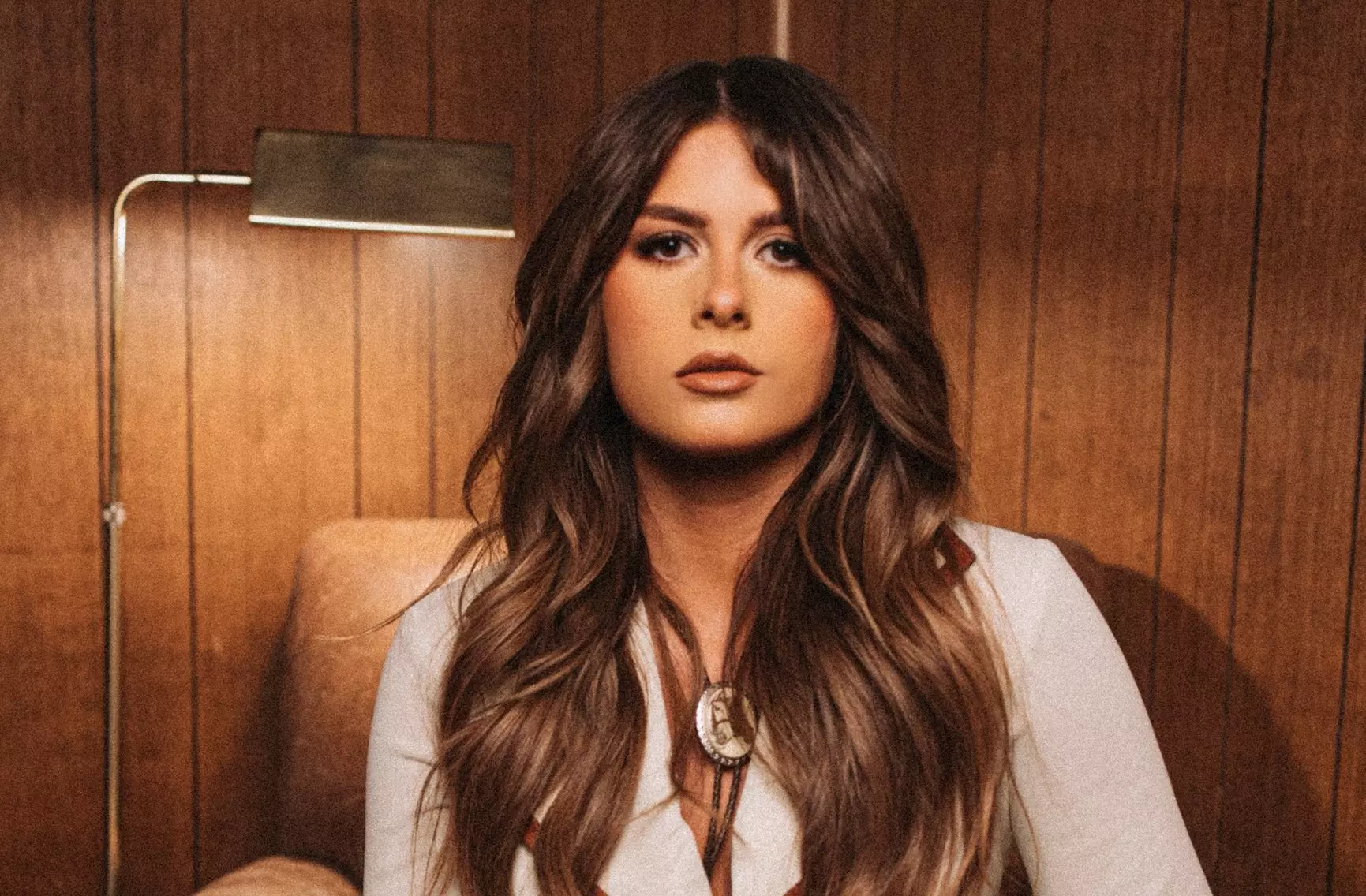
Meet Ella Langley, The "You Look Like You Love Me" Singer Ready To Be Country Music's Next Straight-Shooting Queen
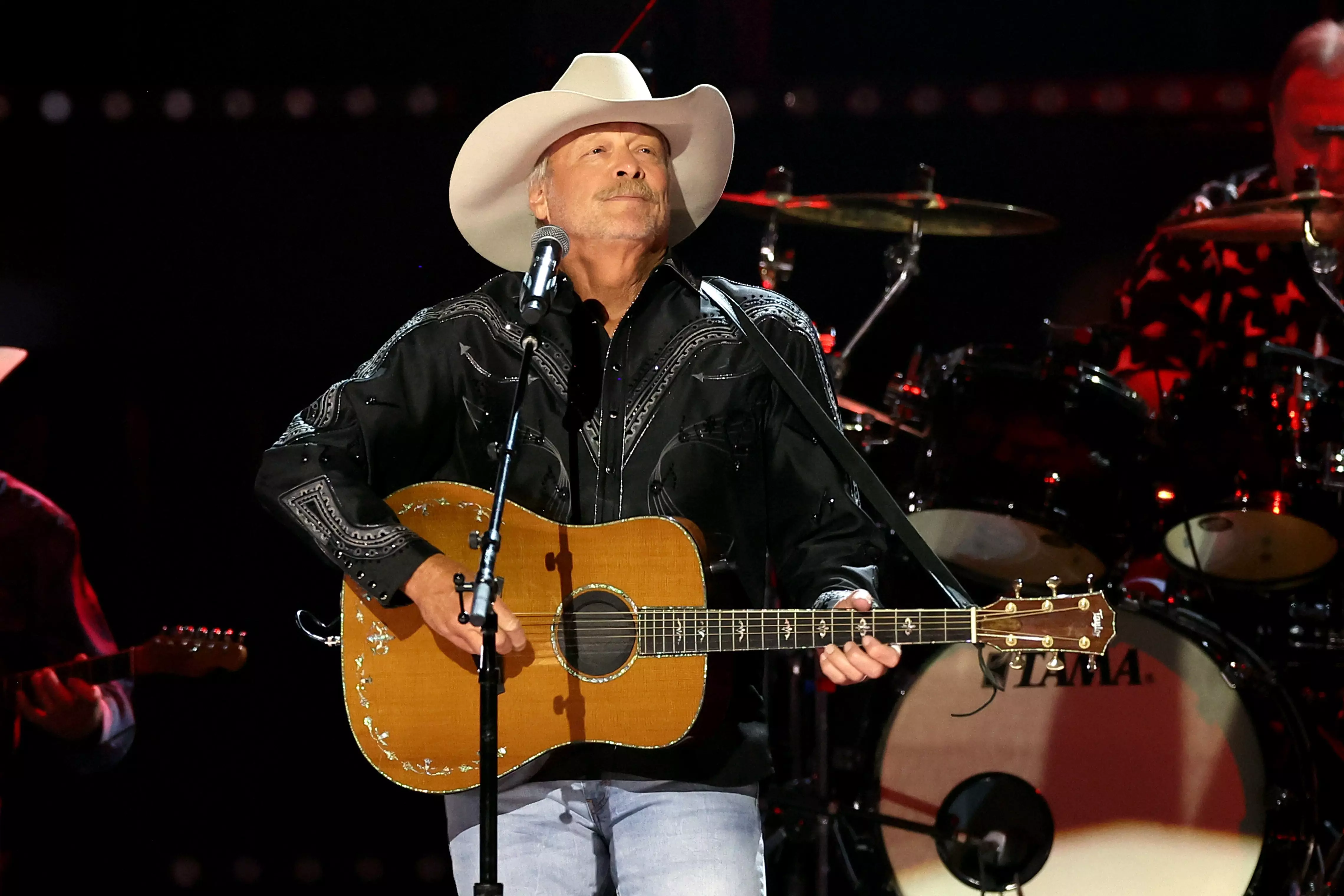
Alan Jackson's Biggest Songs: "Chattahoochee" & 11 More Of The Country Icon's Most Memorable Hits
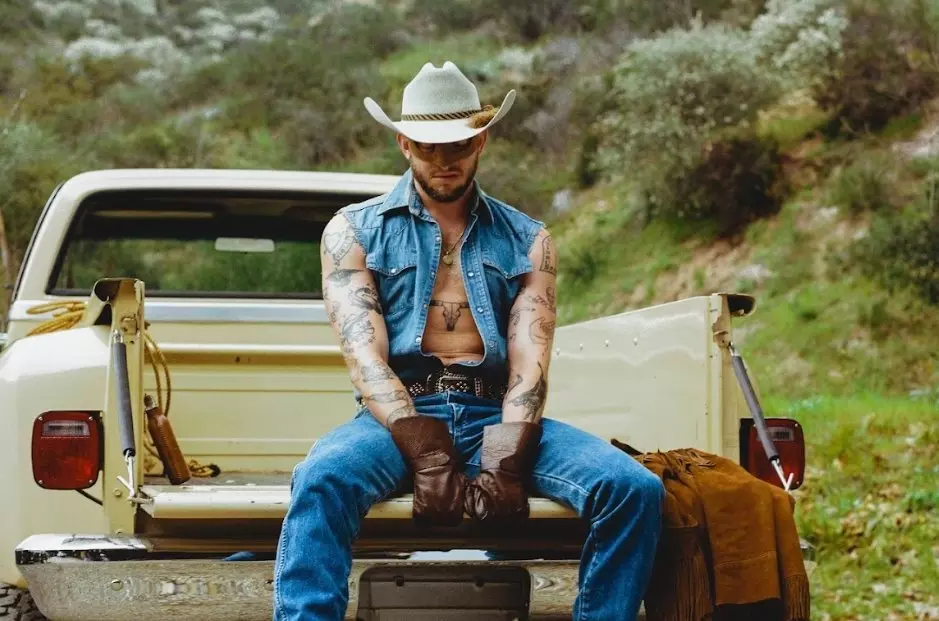
Orville Peck's Road To 'Stampede': How The Masked Cowboy Became Country Music's Most Intriguing Anti-Hero

The Red Clay Strays Offer A New Kind Of Religion With 'Made By These Moments'
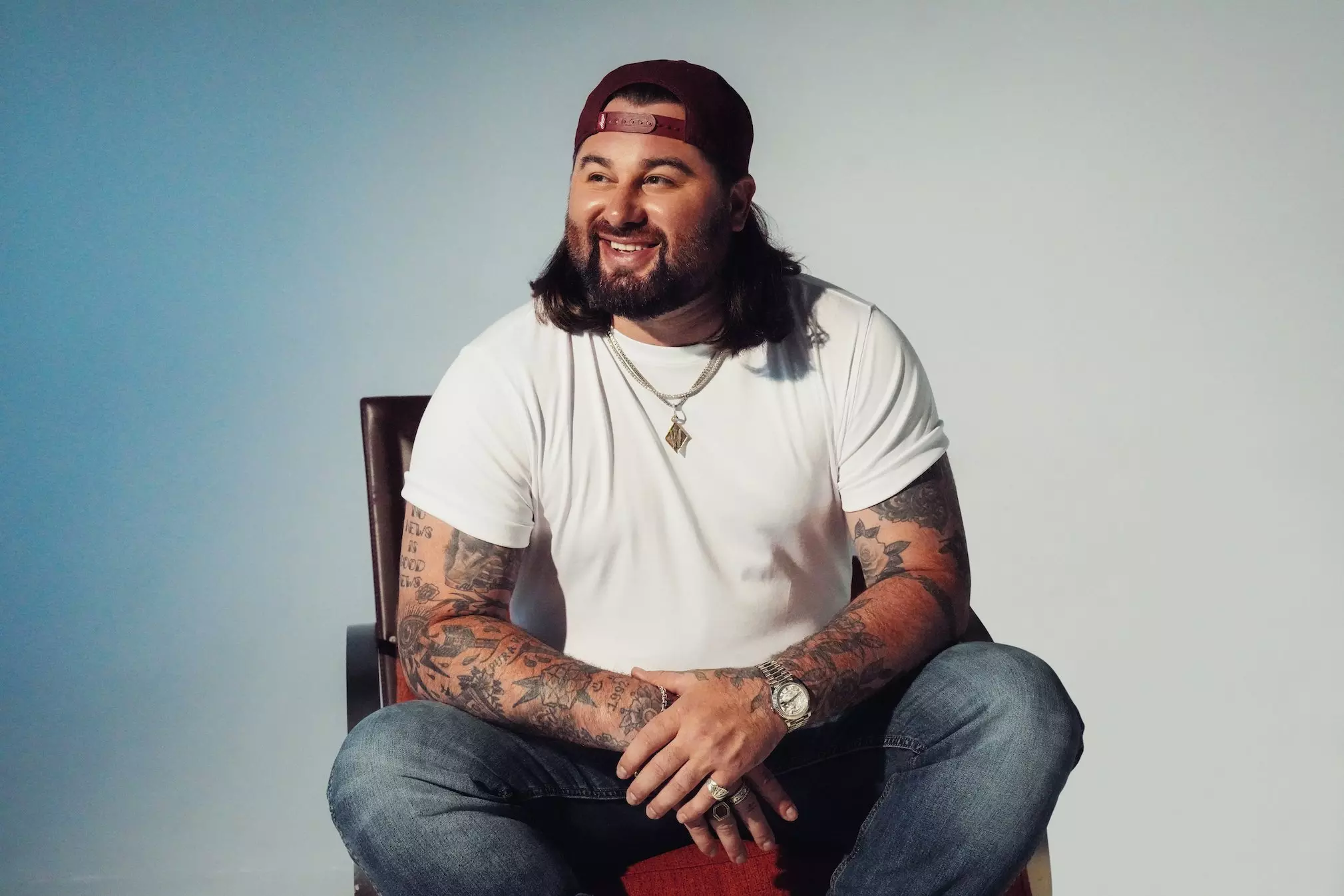
Koe Wetzel On How New Album '9 Lives' Helped Him Tap Into His Feelings
